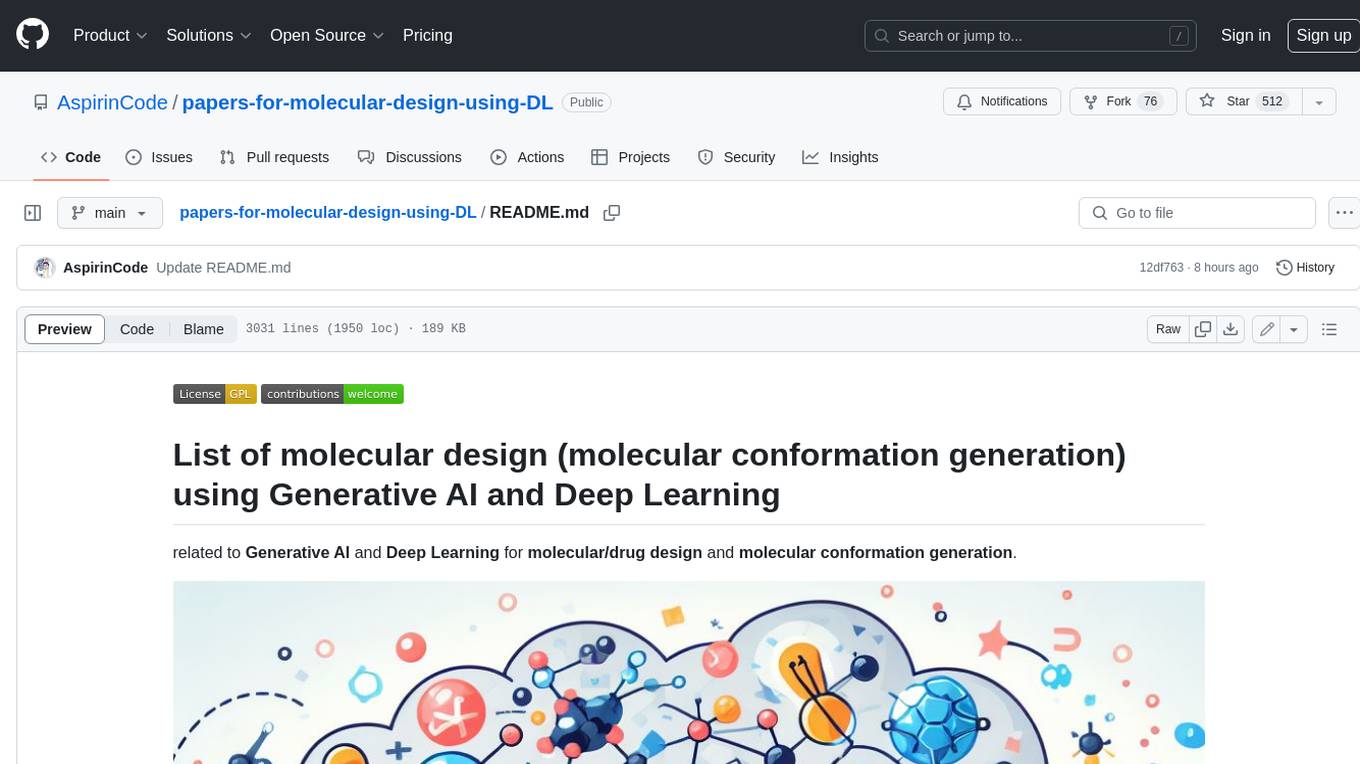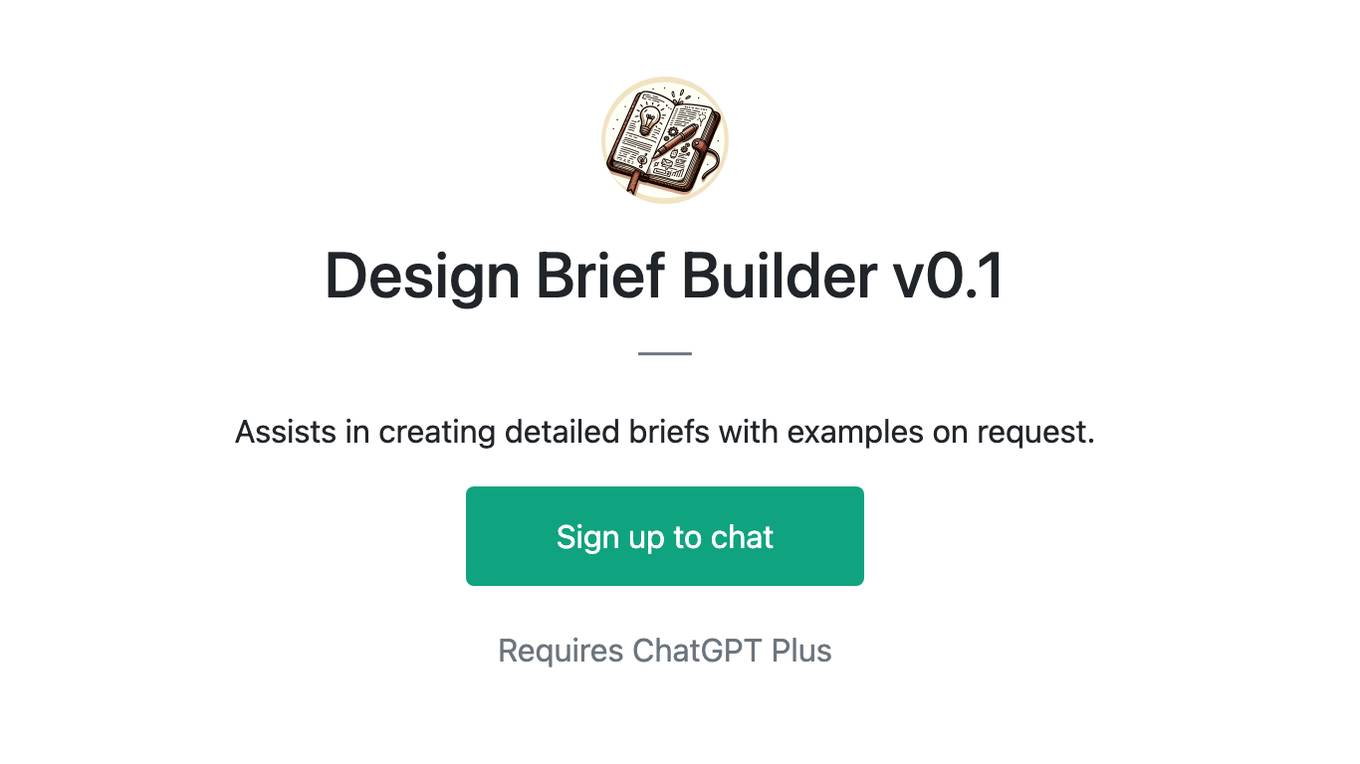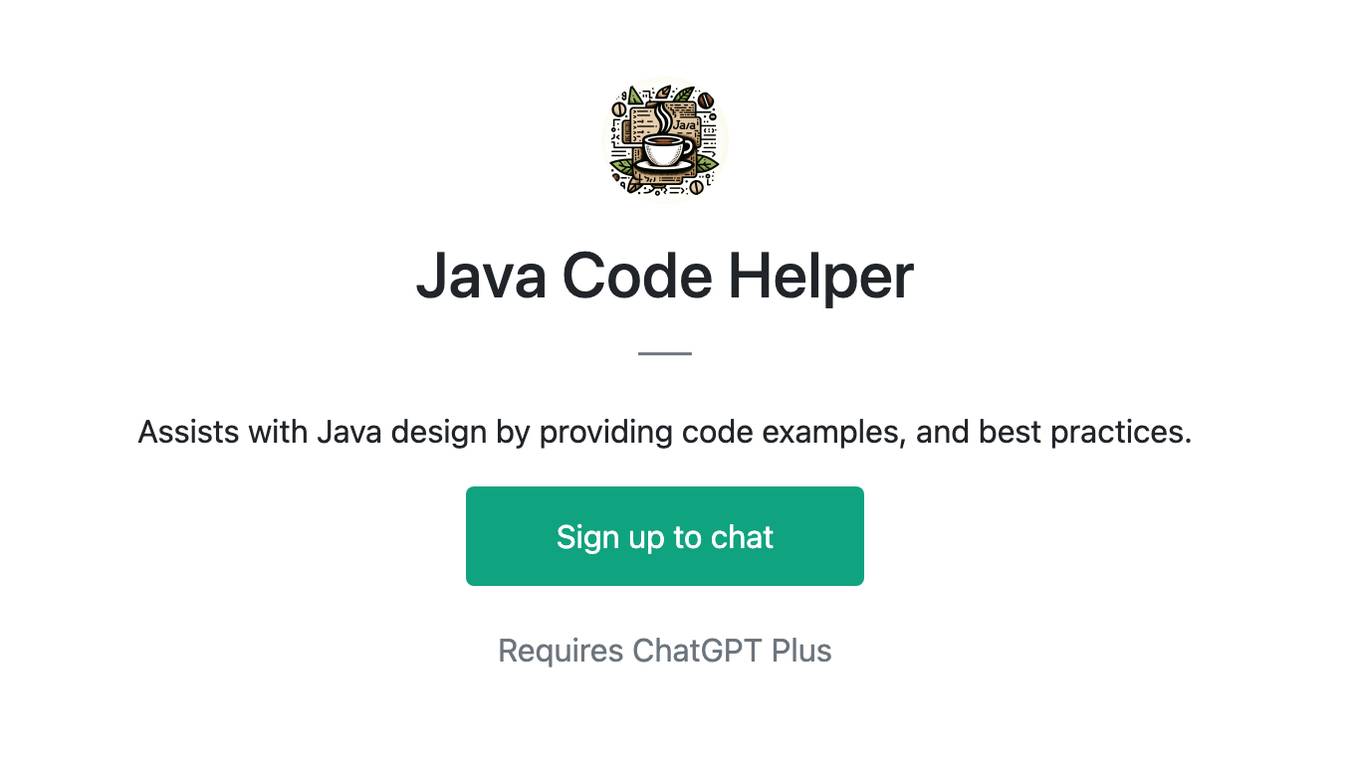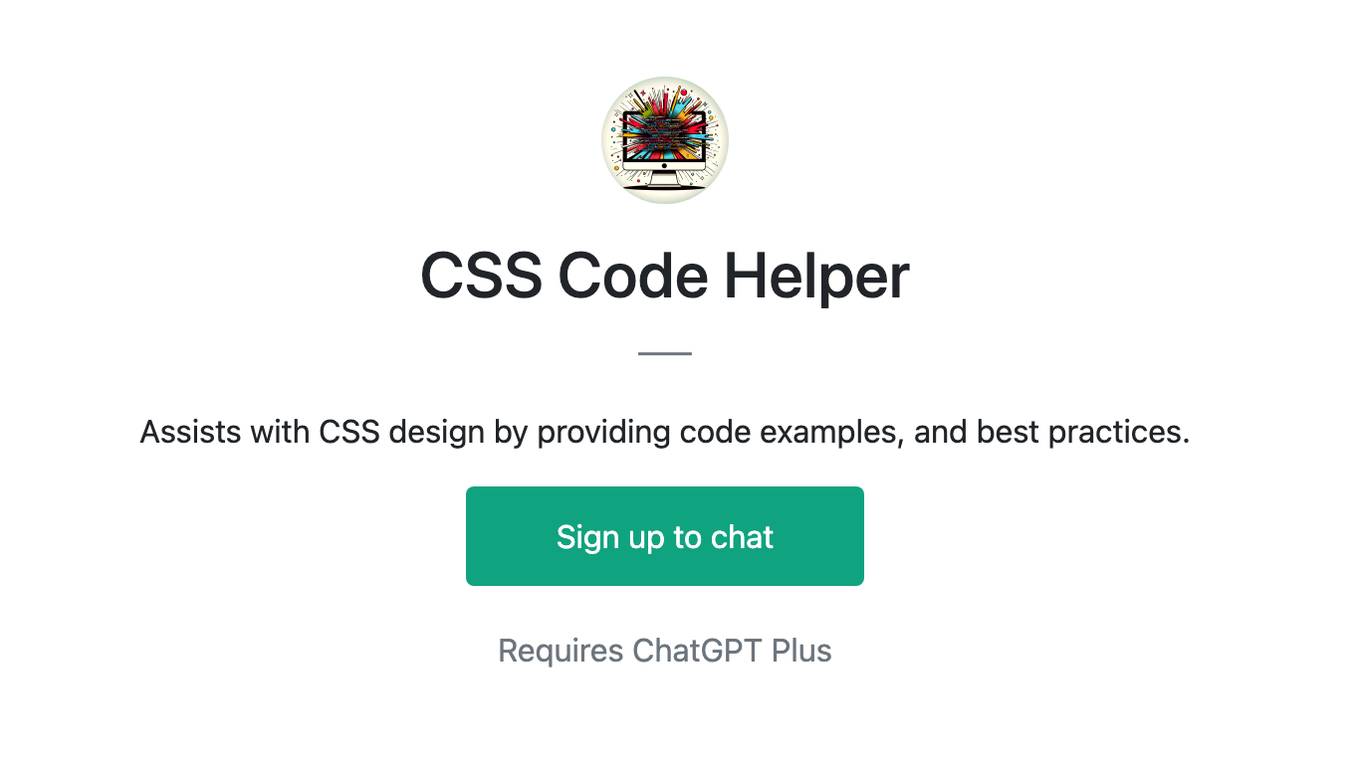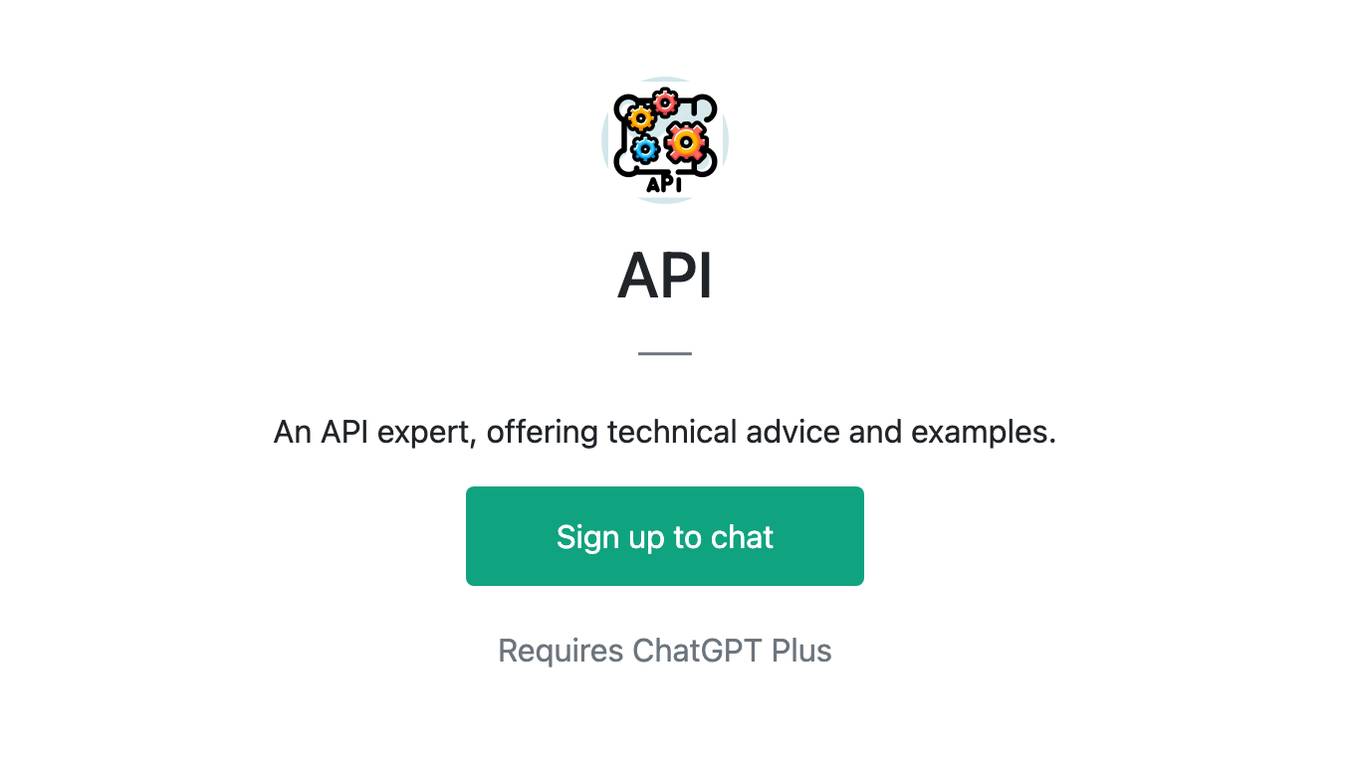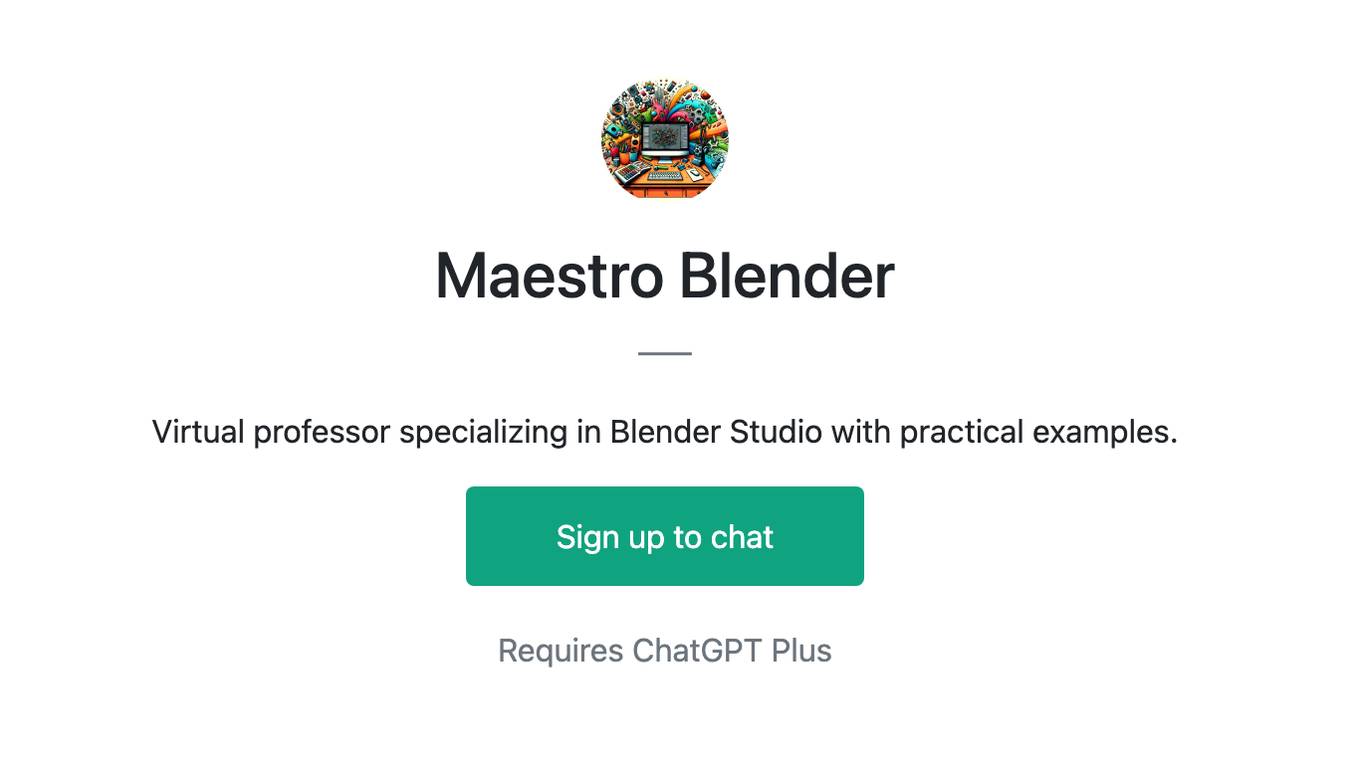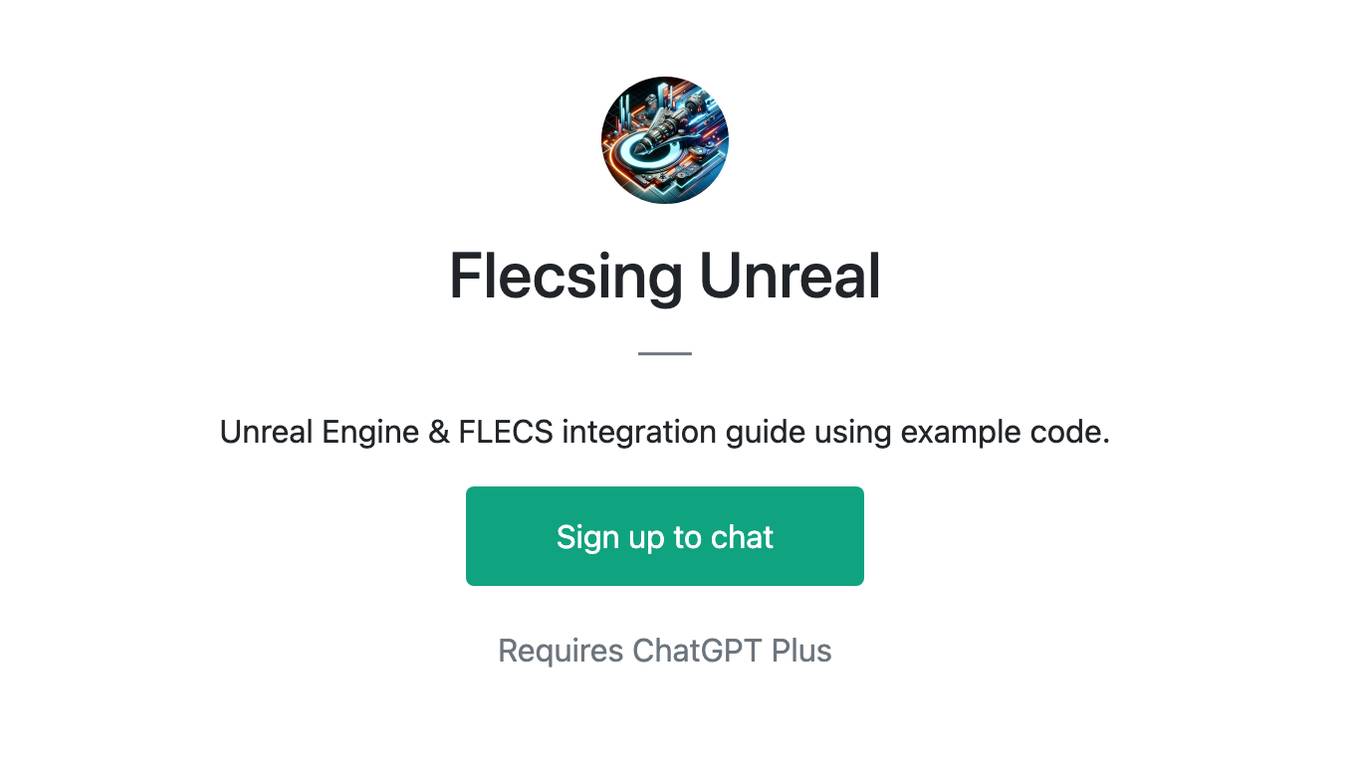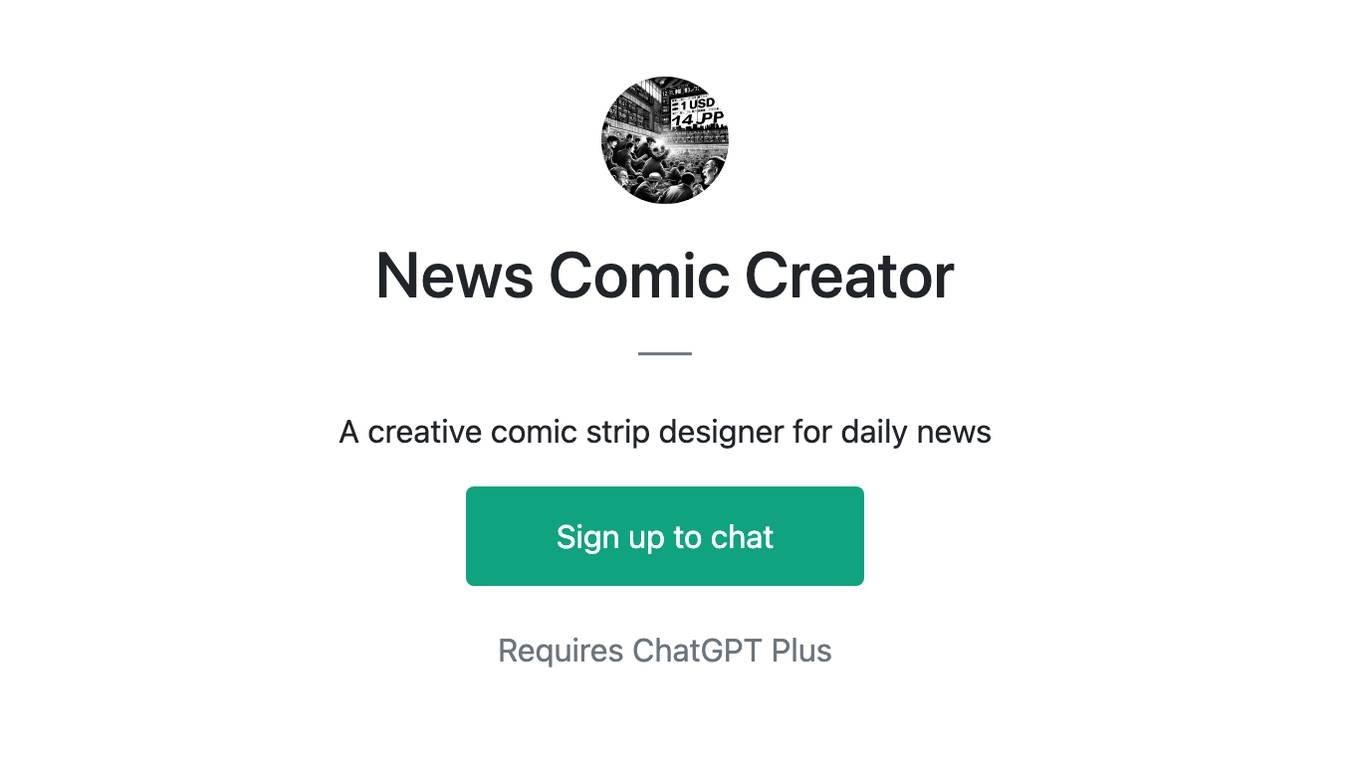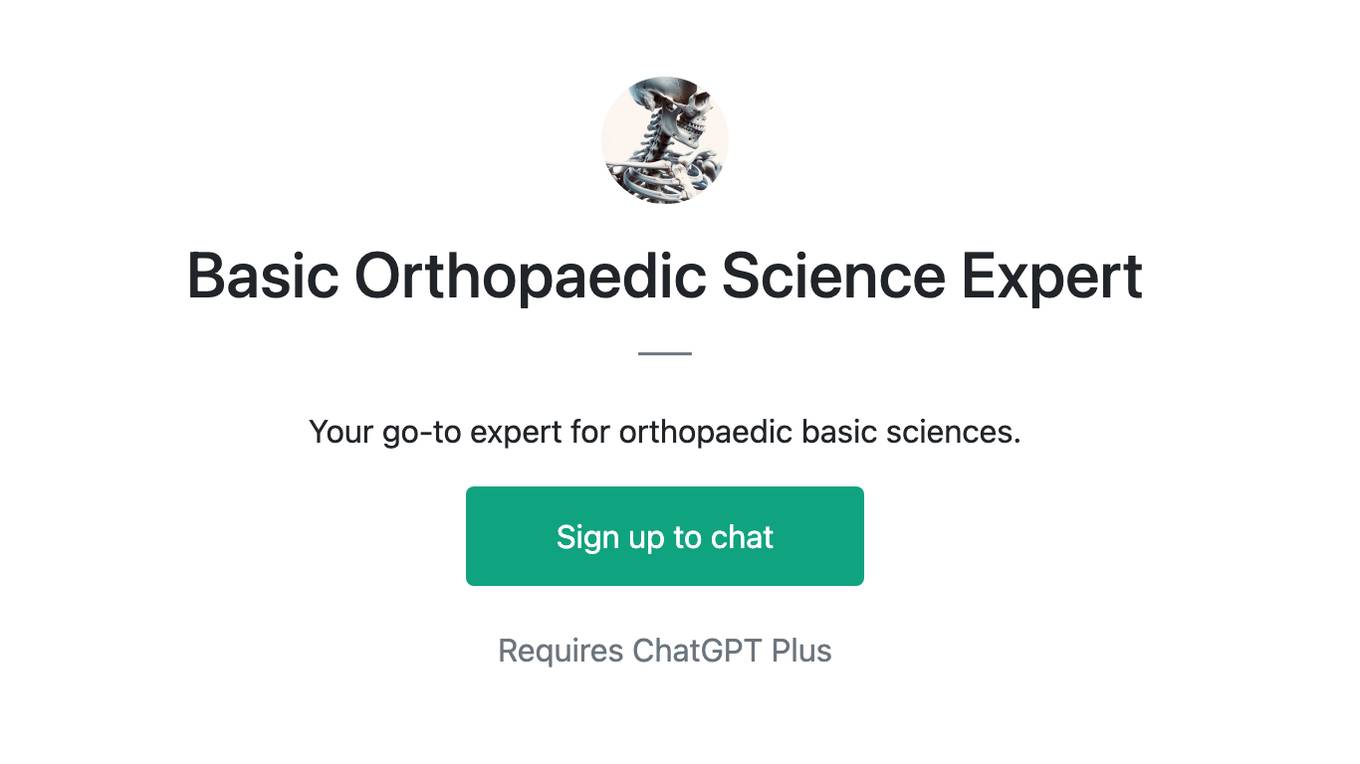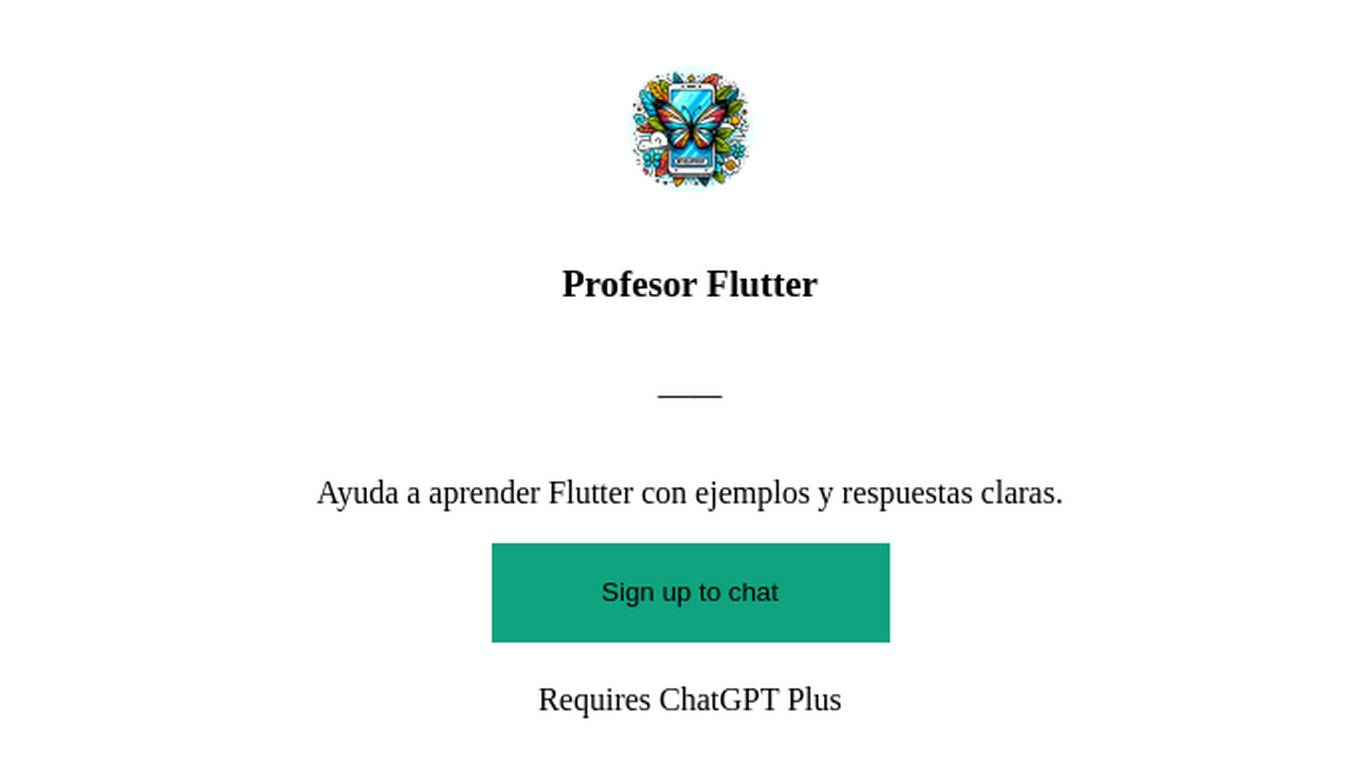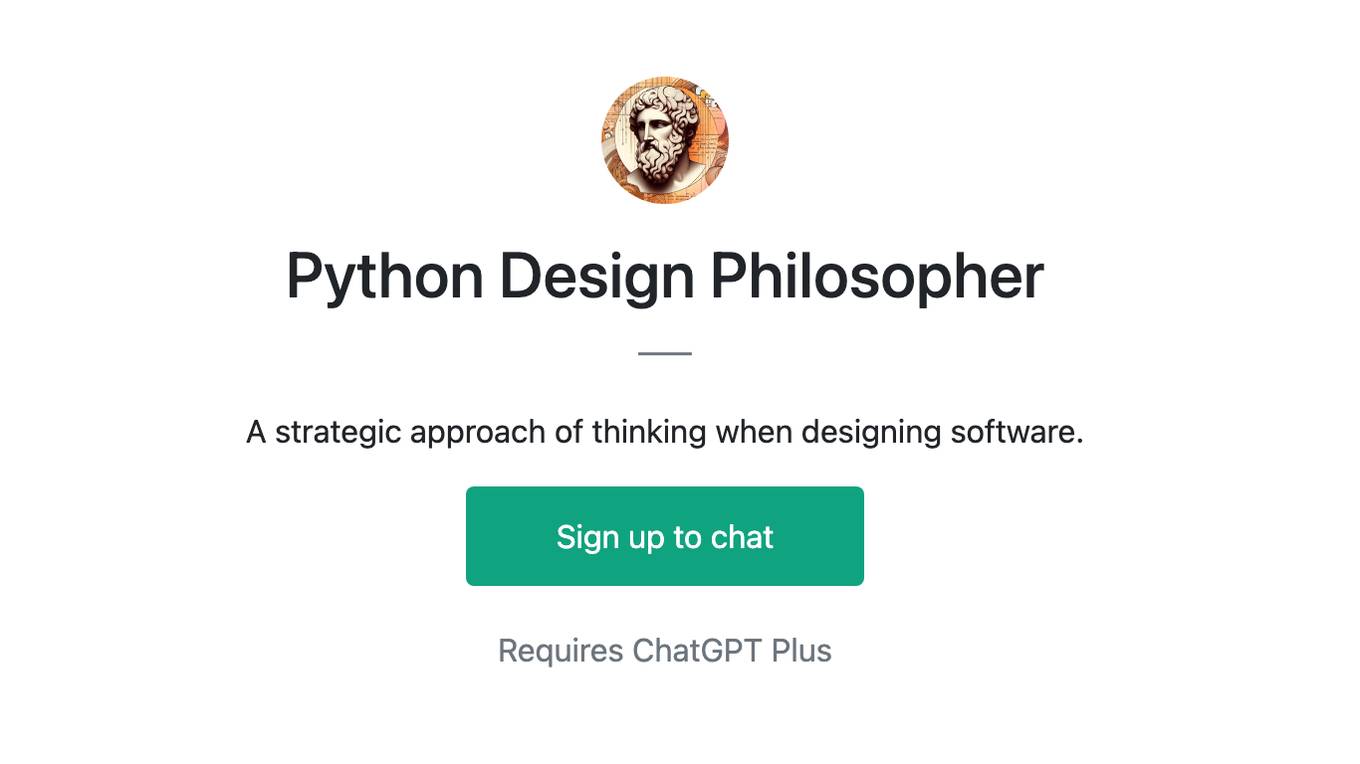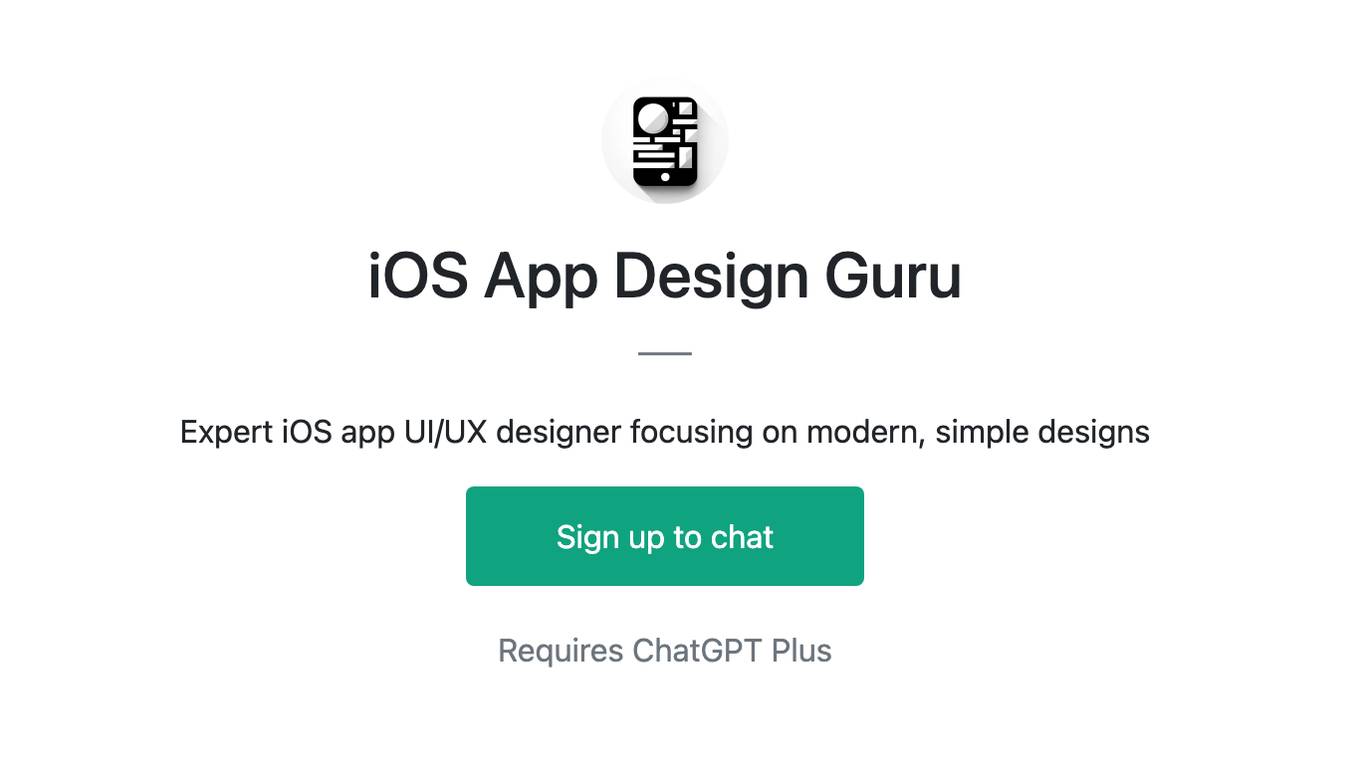Best AI tools for< design exam >
20 - AI tool Sites
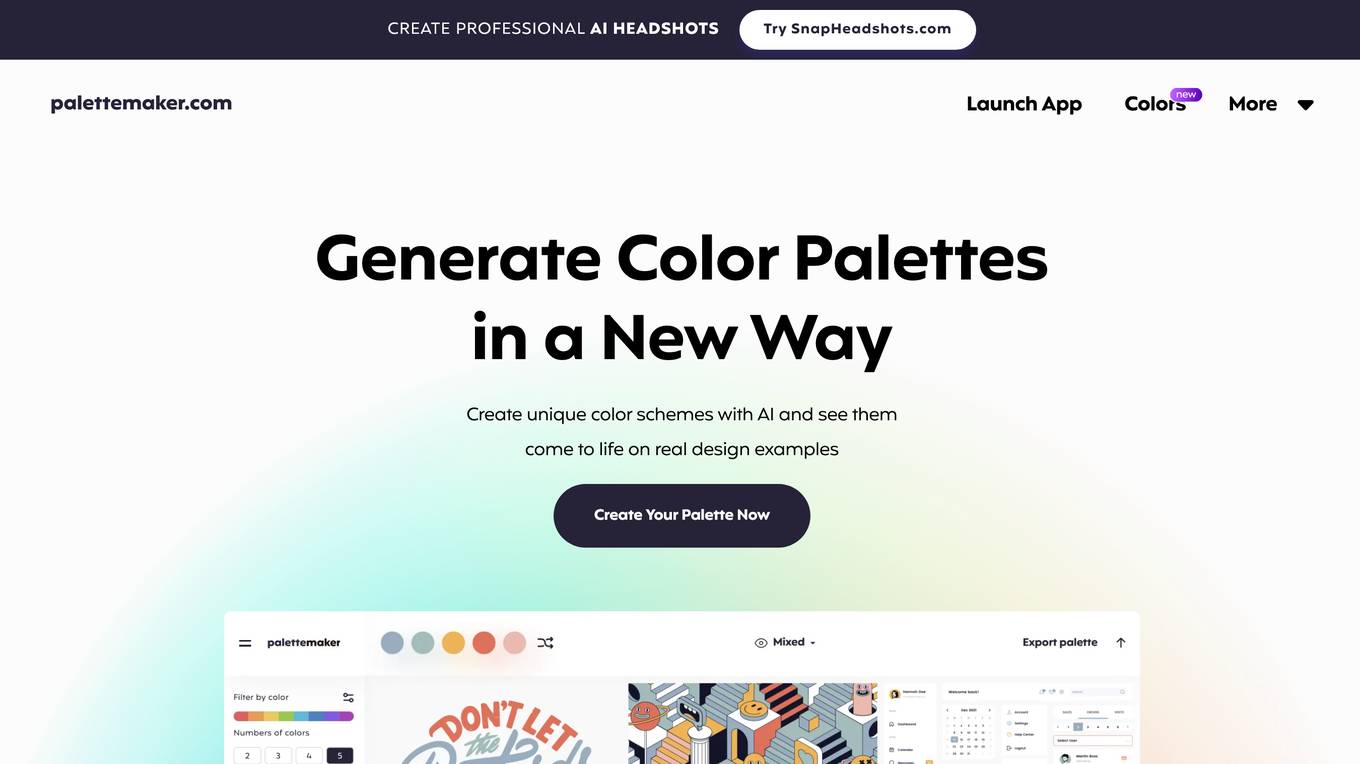
PaletteMaker
PaletteMaker is a unique tool for creative professionals and color lovers that allows you to create color palettes and test their behavior in pre-made design examples from the most common creative fields such as Logo design, UI/UX, Patterns, Posters and more. Check Color Behavior See how color works together in various of situations in graphic design. AI Color Palettes Filter palettes of different color tone and number of colors. Diverse Creative Fields Check your colors on logo, ui design, posters, illustrations and more. Create Palettes On-The-Go Instantly see the magic of creating color palettes. Totally Free PaletteMaker is created by professional designers, it’s completely free to use and forever will be. Powerful Export Export your palette in various formats, such as Procreate, Adobe ASE, Image, and even Code.
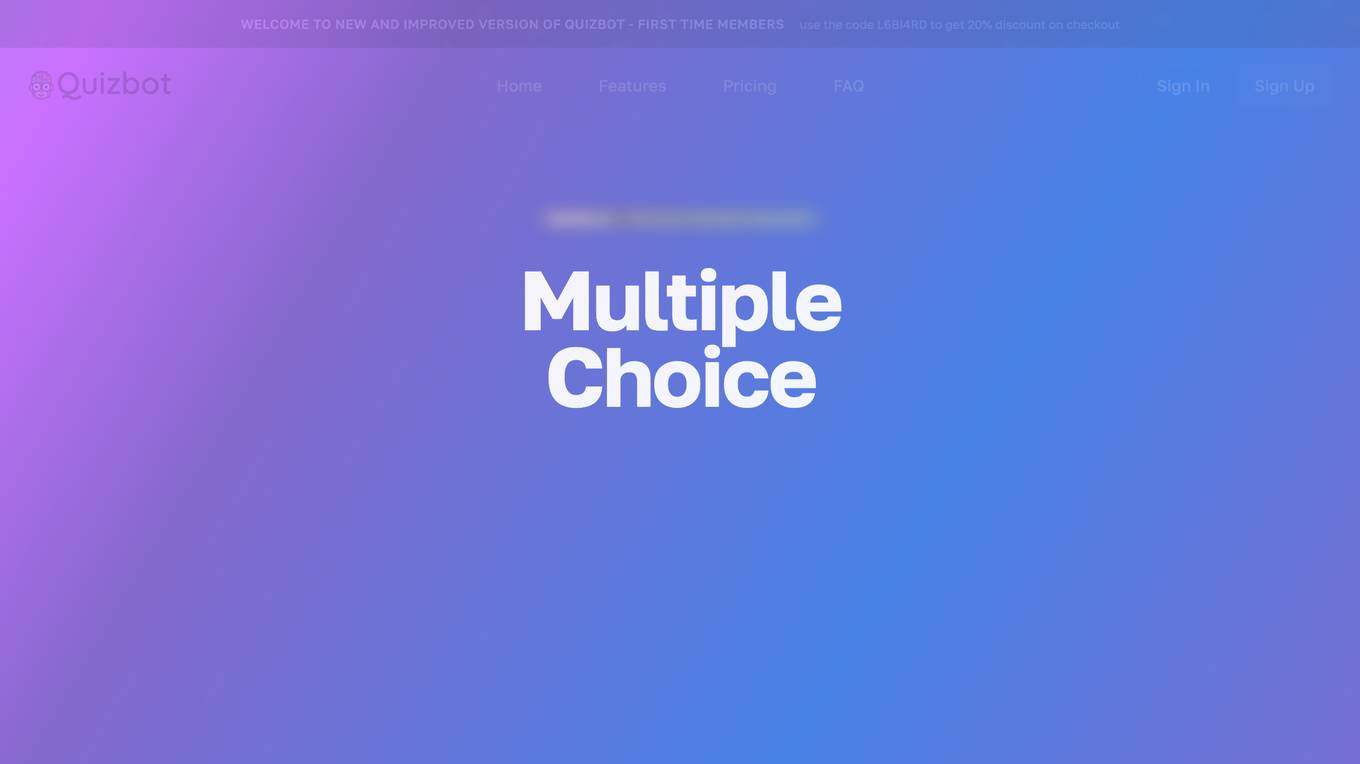
Quizbot
Quizbot is an advanced artificial intelligence question generator that has been meticulously crafted to transform the process of question and exam creation. It can generate various types of questions from any pdf, word, video, picture, link, topic, or audio file. Quizbot also offers features such as plagiarism checking, AI rewriting, and differentiated assessments to enhance the learning and assessment experience.

60sec.site
60sec.site is a no-code website builder that uses AI to help you create landing pages in seconds. It offers a variety of features to make website building easy and accessible for everyone, including AI-generated content, customizable templates, and automatic SEO optimization. With 60sec.site, you can create a professional-looking landing page without any design or coding experience.
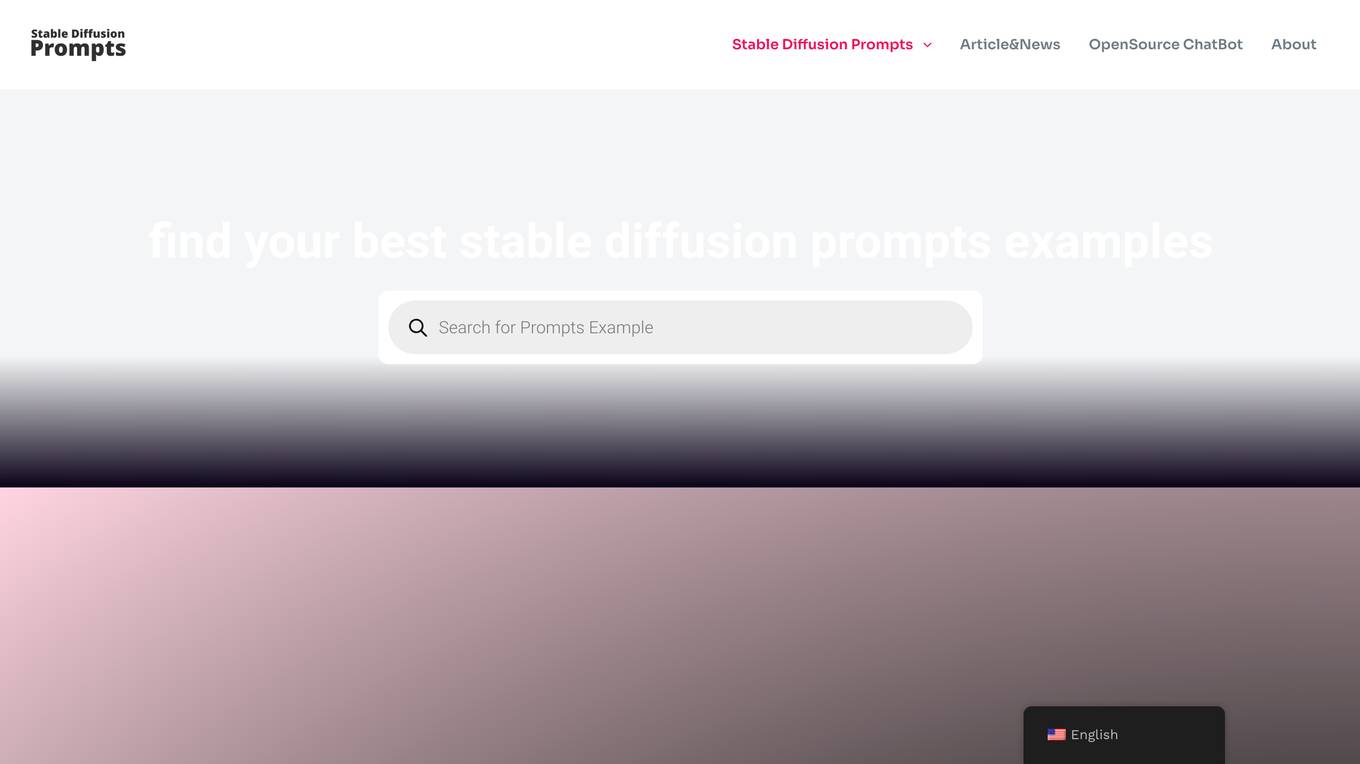
Stable Diffusion Prompts
This website provides a collection of prompts for the Stable Diffusion AI image generation model. Users can search for prompts by model, text, and tags. The website also includes articles and news about Stable Diffusion and other AI-related topics.
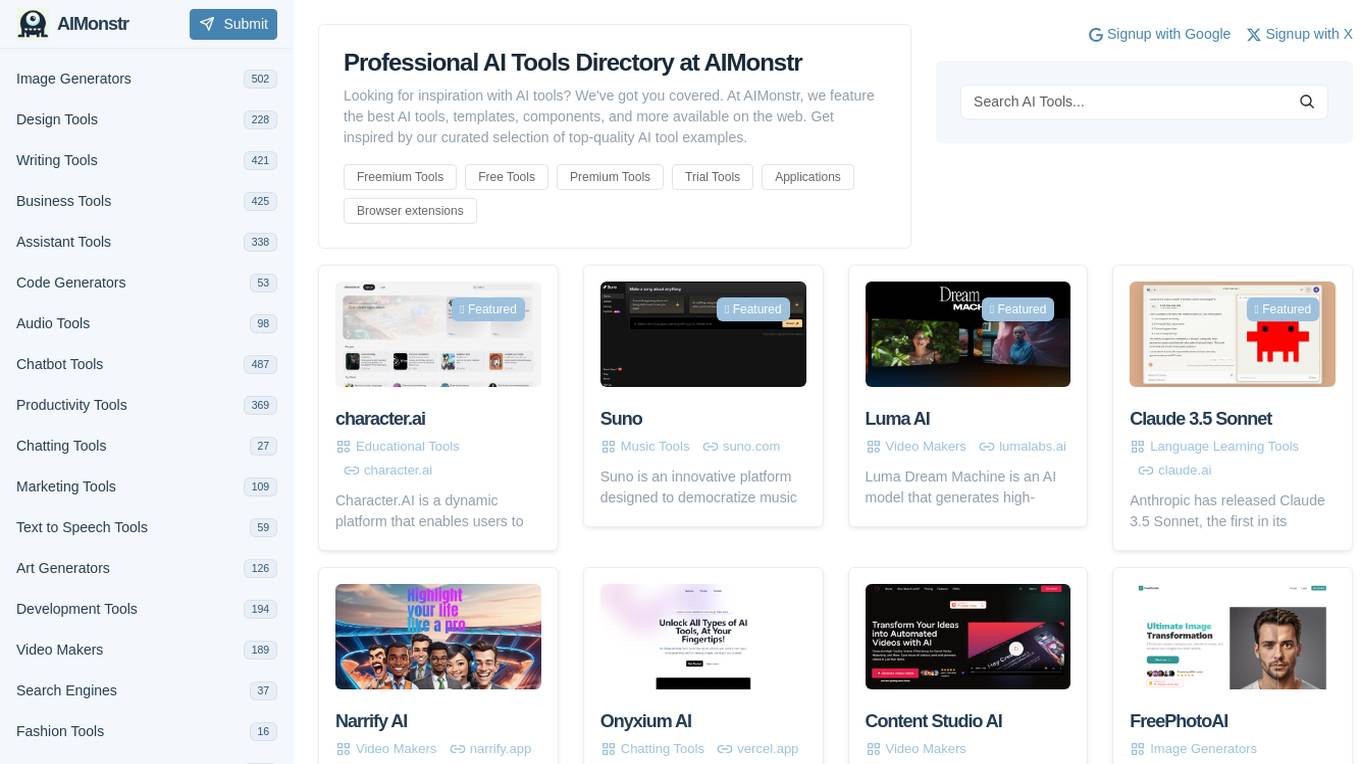
AIMonstr
AIMonstr is a professional AI tools directory featuring a wide range of AI applications, templates, components, and more. The platform showcases top-quality AI tools available on the web, catering to various needs such as design, video creation, chatbots, business tools, and more. Users can explore a curated selection of AI tools to enhance productivity, creativity, and efficiency in different domains.
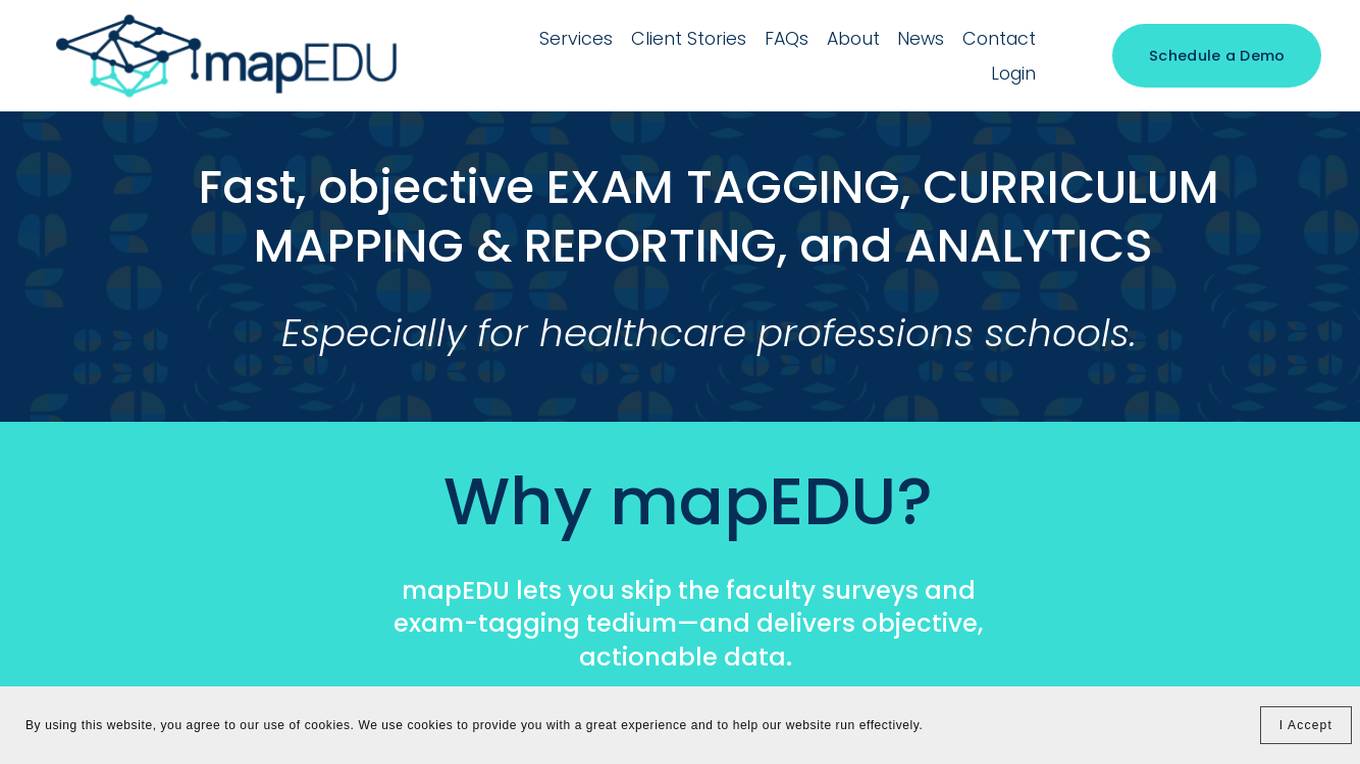
mapEDU
mapEDU is an AI-powered curriculum mapping and exam tagging software designed specifically for healthcare professions schools. It uses natural language processing and machine learning to automatically extract relevant MeSH tags from existing digital content, map events/courses/programs with outcomes, and auto-tag exam questions. This provides healthcare professions schools with objective, actionable data to improve curriculum design, validate revisions, and enhance student performance analytics.
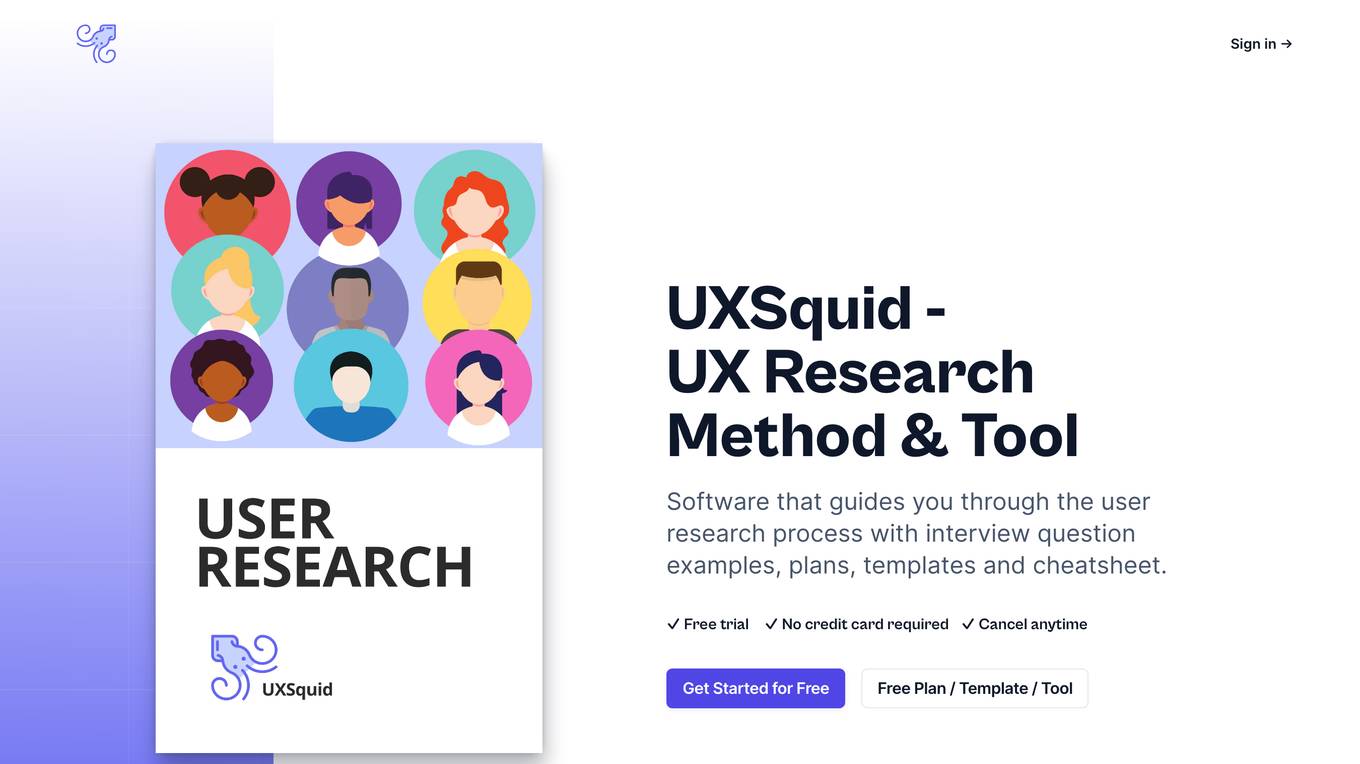
UXSquid
UXSquid is a comprehensive UX research software platform and tool that guides users through the user research process with interview question examples, plans, templates, and a cheat sheet. It offers a free trial, requires no credit card, and allows users to cancel anytime. UXSquid's platform makes it easy to conduct user interviews and gather feedback. Users can use its automation tools to set up interviews with their target audience and gather valuable information. UXSquid analyzes user experiences and interactions with a company using cutting-edge artificial intelligence. It then makes important suggestions and enhancements to improve a product for its users.
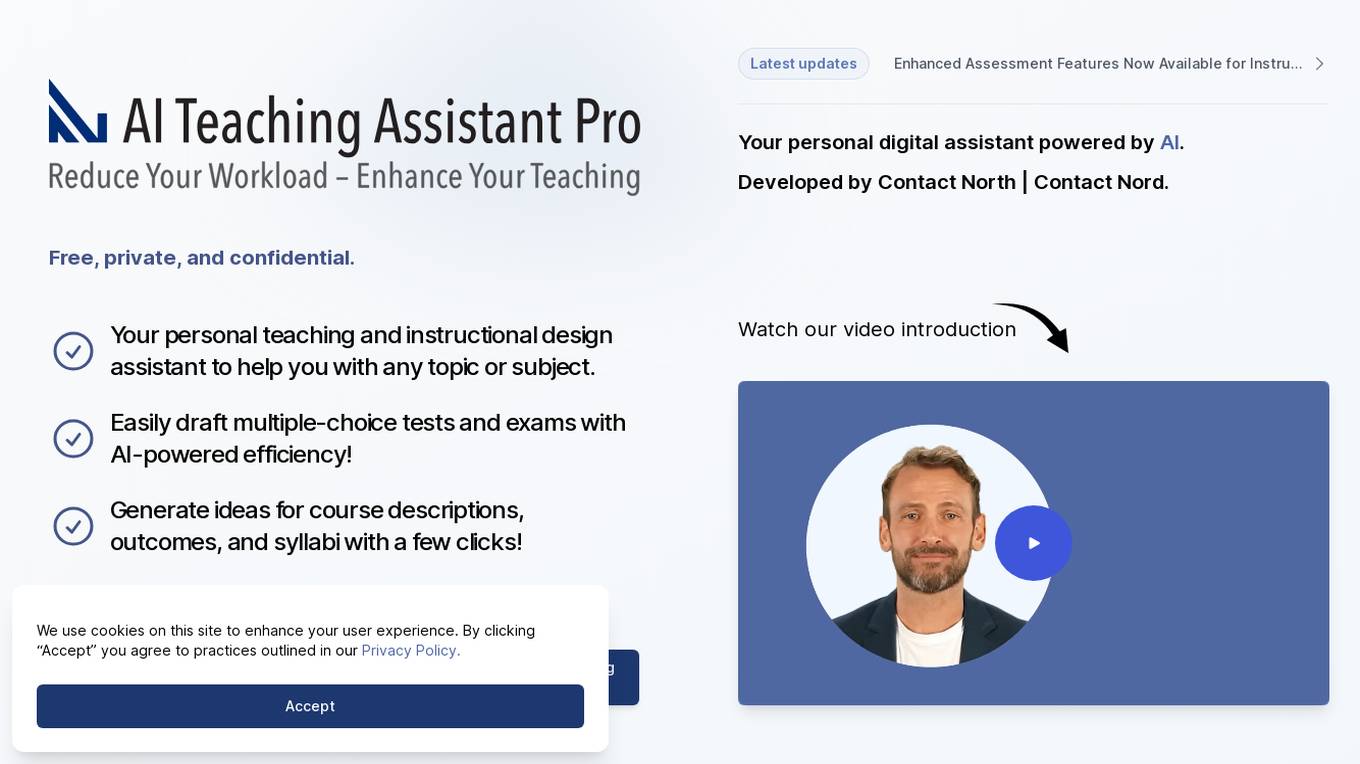
AI Teaching Assistant Pro
AI Teaching Assistant Pro is a free, private, and confidential AI-powered tool developed by Contact North | Contact Nord. It serves as a personal teaching and instructional design assistant to help instructors with various tasks related to course creation and assessment. The tool offers enhanced assessment features, including the ability to easily draft multiple-choice tests and exams with AI-powered efficiency. Instructors can also generate ideas for course descriptions, outcomes, and syllabi with just a few clicks. AI Teaching Assistant Pro aims to streamline the teaching process and provide valuable support to educators.

Flash Notes
Flash Notes is a highly personalized and efficient learning experience tailored to advanced learners. It offers AI-powered flashcards, tailored learning algorithms, seamless multi-device synchronization, and a privacy-centric design. With Flash Notes, you can convert your notes into dynamic flashcards, get compelling prompts generated by ChatGPT, and learn at your own pace based on the spaced repetition method. Your notes are securely stored in iCloud and synced across all your devices using CRDT technology.
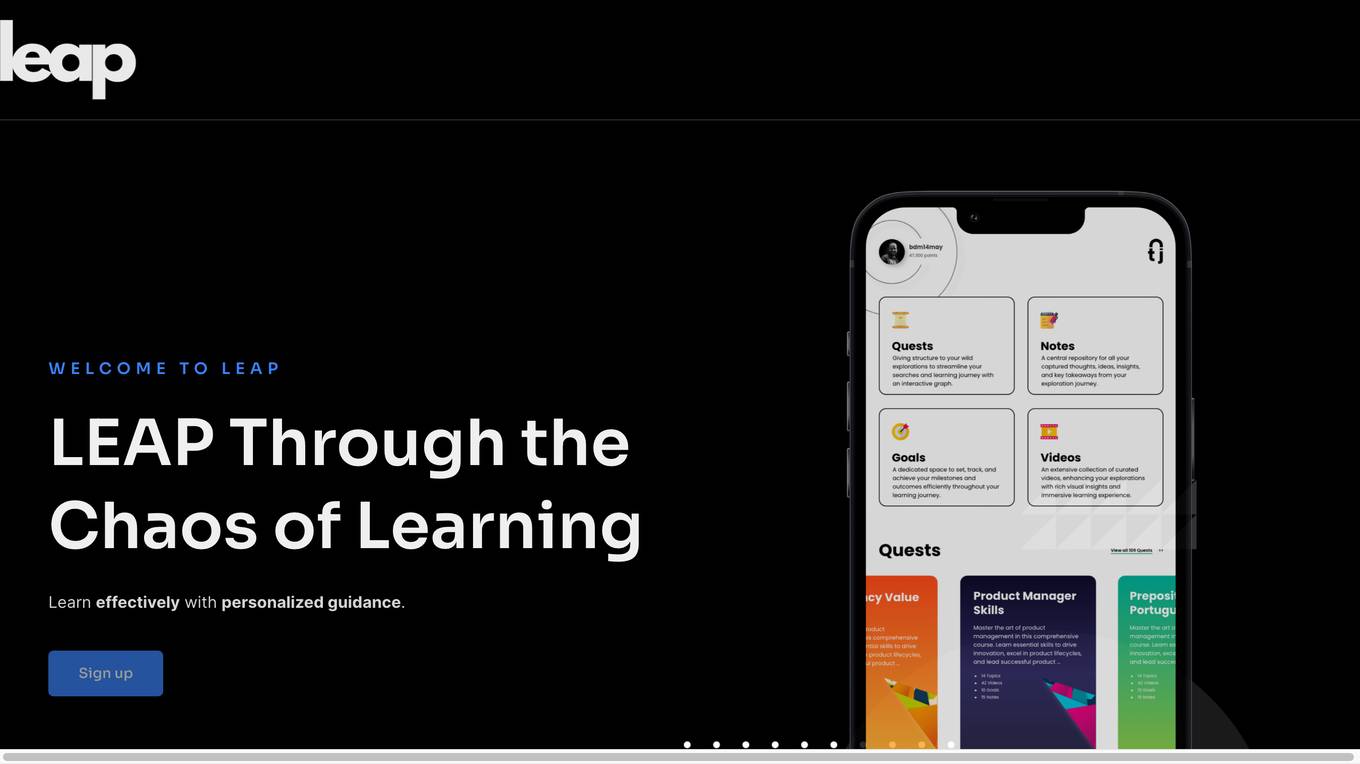
LEAP by ThoughtJumper
LEAP by ThoughtJumper is an AI-powered personalized learning platform that offers a wide range of courses in various domains such as web development, digital marketing, data science, finance, design, business, product management, and personal growth. It provides customized learning paths, interactive learning experiences, goal tracking, and future feature suggestions. LEAP aims to make learning faster, clearer, and more engaging by leveraging smart learning techniques and a blend of theory with practical examples. The platform is currently in closed beta testing, offering free access to selected users with plans to expand to mobile devices soon.

Resume Builder
Resume Builder is an online resume builder that offers a quick and easy way to create a professional resume. With over 30 design templates, AI-powered suggestions, and expert guidance, Resume Builder helps users create resumes that get results. Users can also access over 500 free resume examples and templates to get expert advice on what to include in their resume. Resume Builder is free to use, but users can upgrade to a paid subscription to download their resume as a PDF.

Design Wizard
Design Wizard is a free online graphic design software that allows users to create impressive videos and image designs in minutes. It offers a wide range of pre-made templates, premium images, videos, and fonts to help users create unique and professional-looking content. Design Wizard is easy to use and requires no prior design experience. It is perfect for individuals, small businesses, and organizations that need to create high-quality visual content quickly and easily.
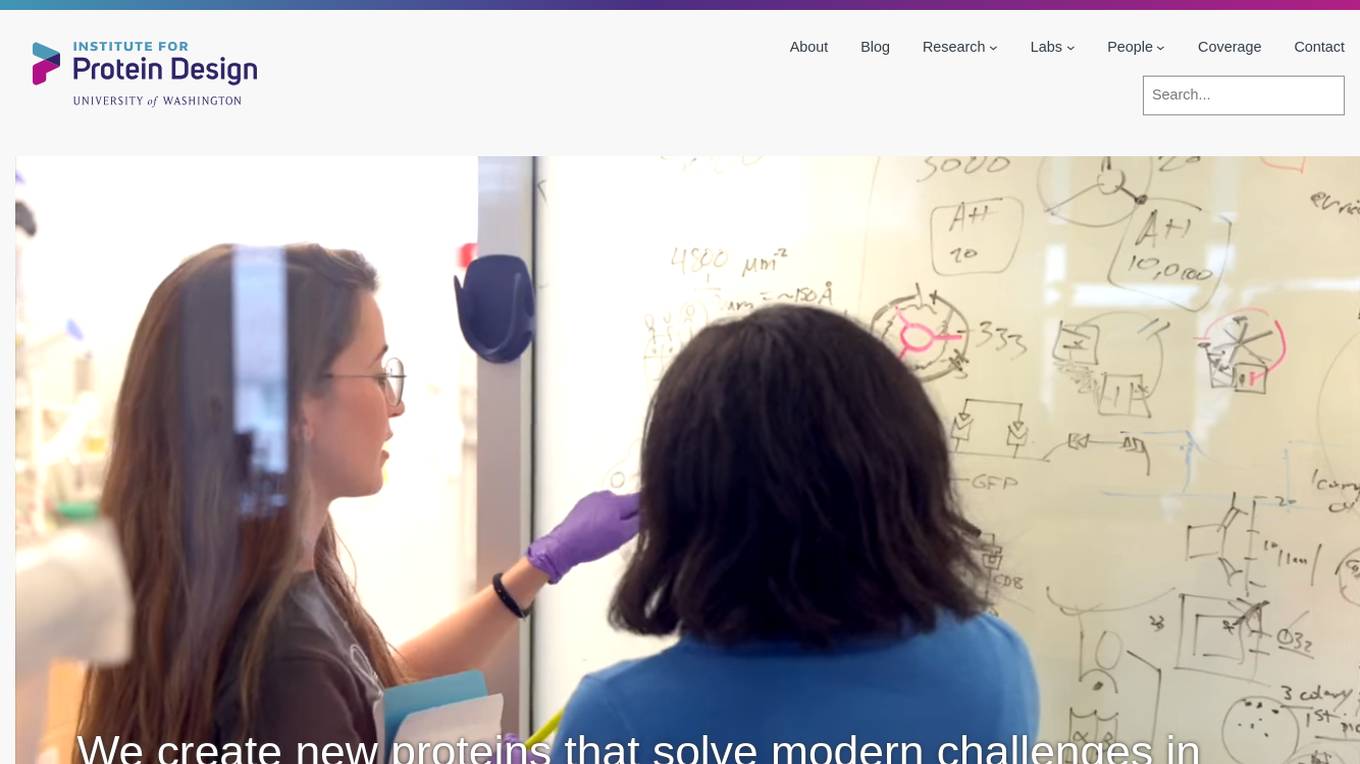
Institute for Protein Design
The Institute for Protein Design is a research institute at the University of Washington that uses computational design to create new proteins that solve modern challenges in medicine, technology, and sustainability. The institute's research focuses on developing new protein therapeutics, vaccines, drug delivery systems, biological devices, self-assembling nanomaterials, and bioactive peptides. The institute also has a strong commitment to responsible AI development and has developed a set of principles to guide its use of AI in research.
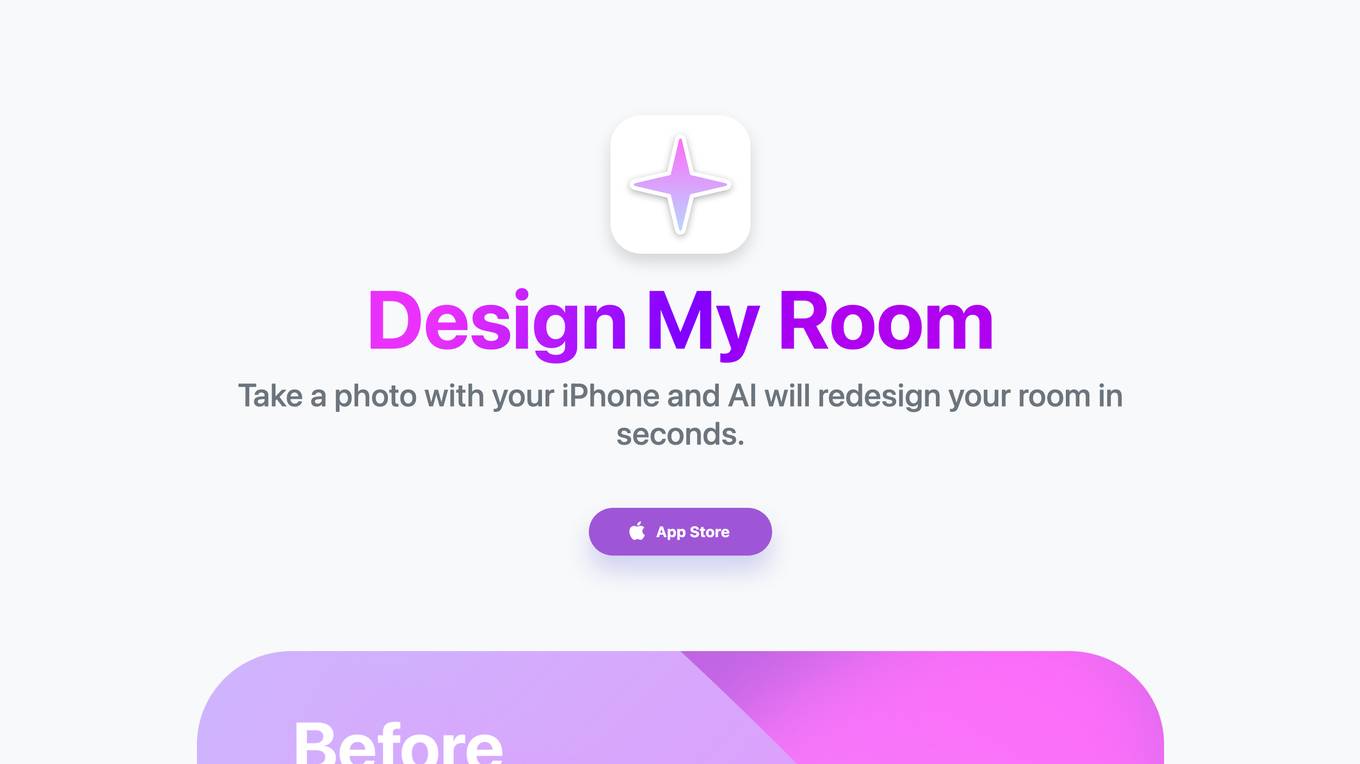
Design My Room
Design My Room is an AI-powered interior design app that allows users to redesign their rooms in seconds. Simply take a photo of your room and the app will generate 5 different design ideas for you. The app also provides a wide range of unique design inspirations to help you get started on your home makeover projects.

AI Landscape Design Idea Generator
The AI Landscape Design Idea Generator is a web-based tool that helps users create beautiful and functional landscape designs. The tool uses artificial intelligence to generate design ideas based on the user's input. Users can choose from a variety of design styles, plant types, and other features to create a design that is perfect for their needs.
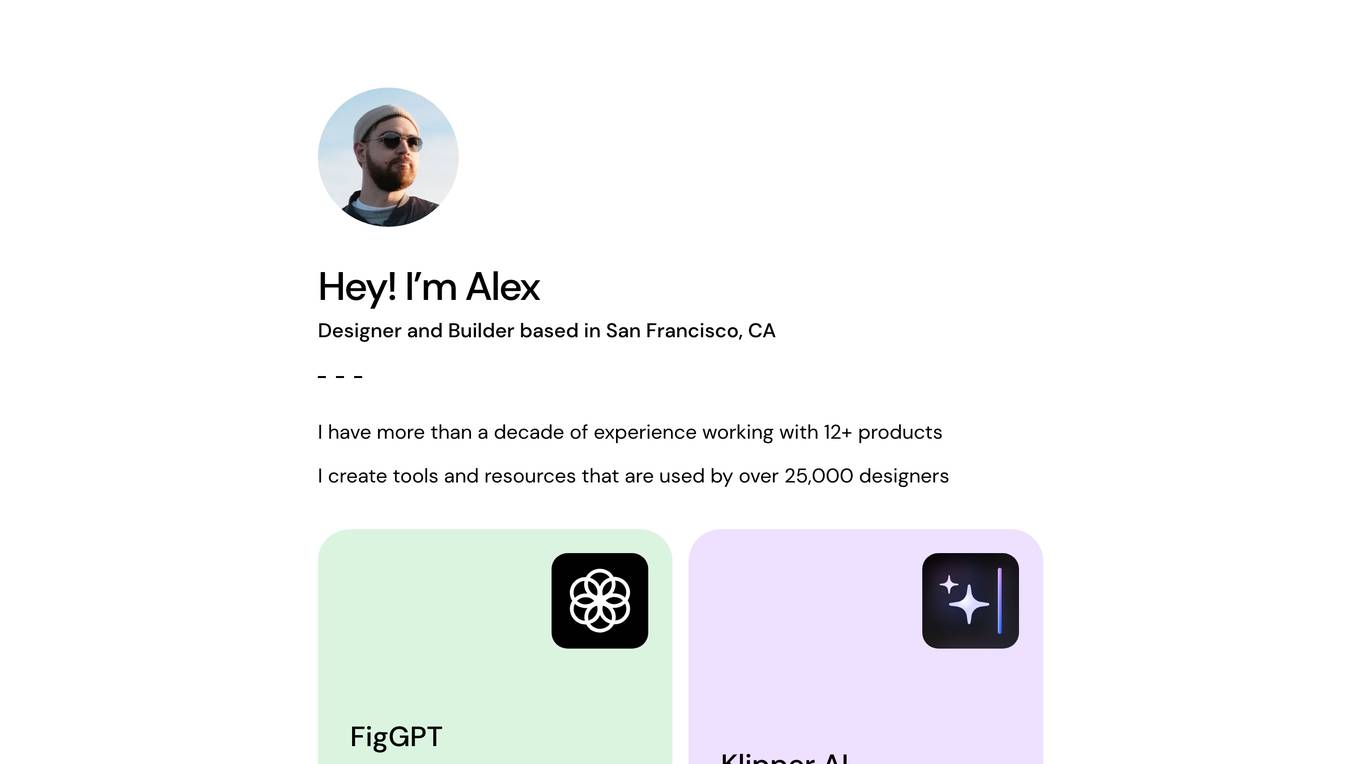
Oleksandr Shevenionov Design Tools
The website is a platform created by Oleksandr Shevenionov, a designer and builder based in San Francisco, CA. It offers tools and resources for designers, including FigGPT, a Figma plugin for editing and composing copy, and Klipper AI for quick access to AI on Mac. With over a decade of experience and a user base of 25,000 designers, the platform aims to provide innovative solutions for design professionals.
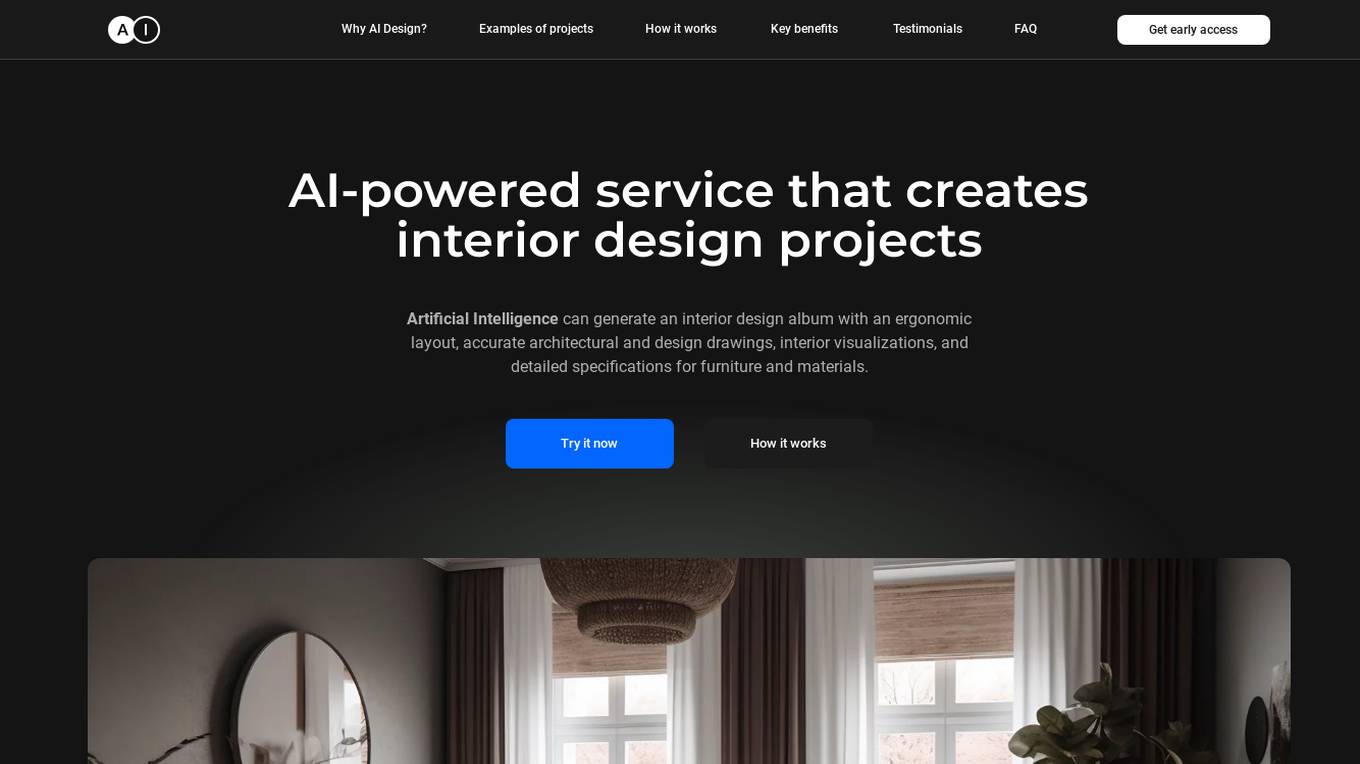
AI Design
AI-Design.pro is an AI-powered service that creates interior design projects. It utilizes artificial intelligence to generate interior design albums with accurate architectural and design drawings, visualizations, and detailed specifications for furniture and materials. The platform streamlines the interior design process, making it more efficient and significantly reducing the time it takes to locate an interior designer. Users can create customized design projects tailored to their specific requirements without the need for a designer, meetings, or phone calls. The service offers a simple and intuitive interface, hundreds of design options, and automated procurement estimates for purchasing furniture and materials.
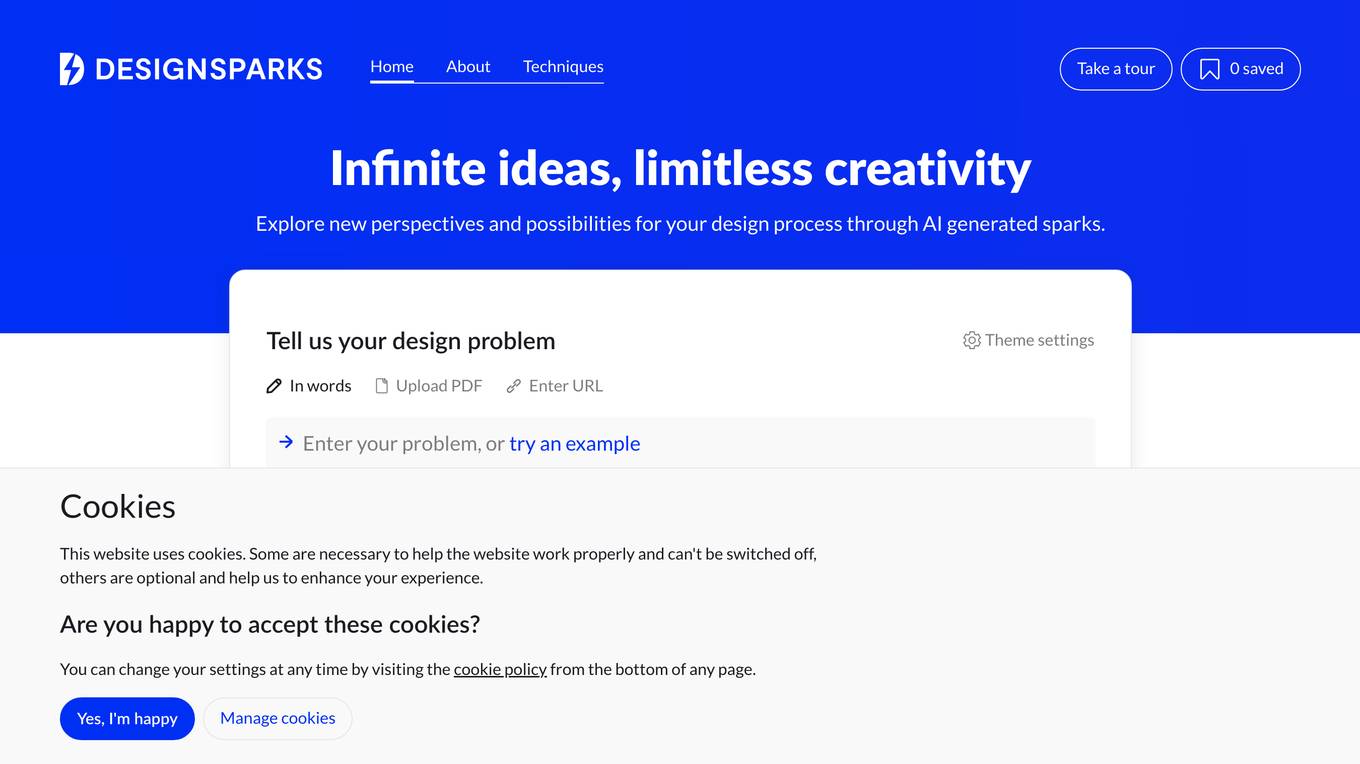
Design Sparks
Design Sparks is an AI-powered application that aims to spark infinite ideas and unleash limitless creativity in the design process. By leveraging artificial intelligence, users can explore new perspectives and possibilities for their designs. The platform allows users to input their design problems or themes, upload PDFs or enter URLs, and generate sparks of inspiration. Design Sparks provides a user-friendly interface for generating and saving design ideas, making it a valuable tool for designers seeking innovative solutions.
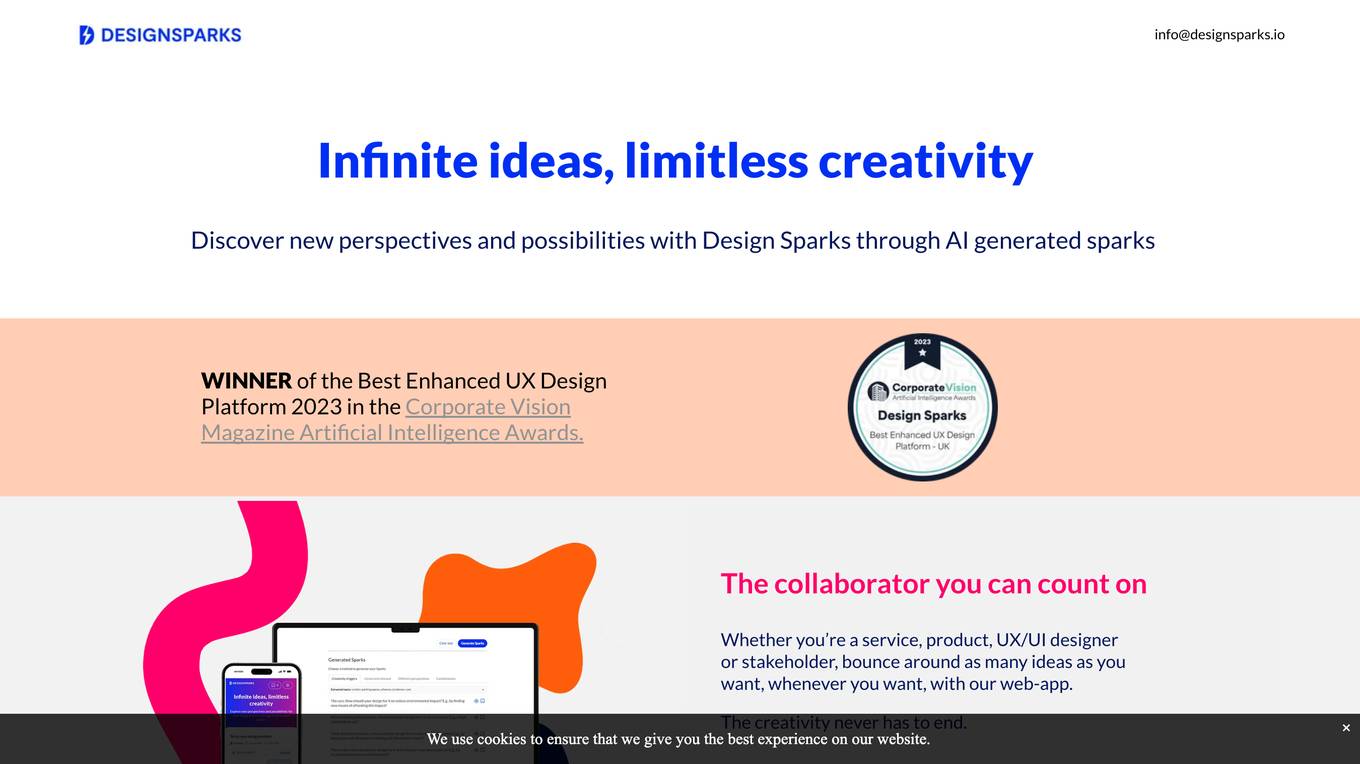
Design Sparks
Design Sparks is an AI-powered creativity tool that helps users generate new ideas and solve design problems. The tool uses a variety of AI techniques, including machine learning and natural language processing, to understand user input and generate relevant ideas. Design Sparks is designed to be used by a wide range of users, from designers and engineers to marketers and business professionals. The tool is easy to use and can be accessed through a web-based interface.
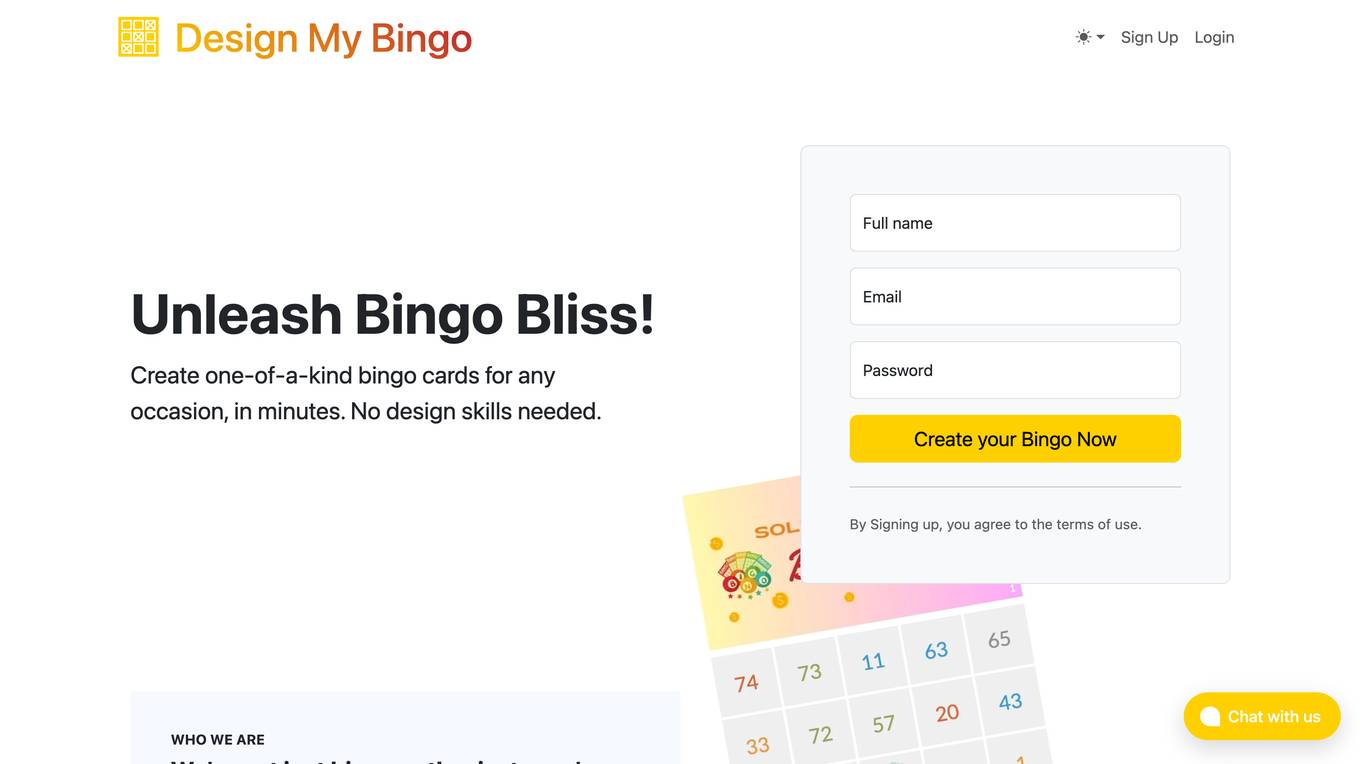
Design My Bingo
Design My Bingo is an online platform that allows users to create custom bingo cards for any occasion. With its user-friendly interface and powerful AI features, Design My Bingo makes it easy to create unique and engaging bingo cards that are tailored to your specific needs. Whether you're hosting a party, teaching a class, or simply want to have some fun, Design My Bingo has you covered.
20 - Open Source AI Tools
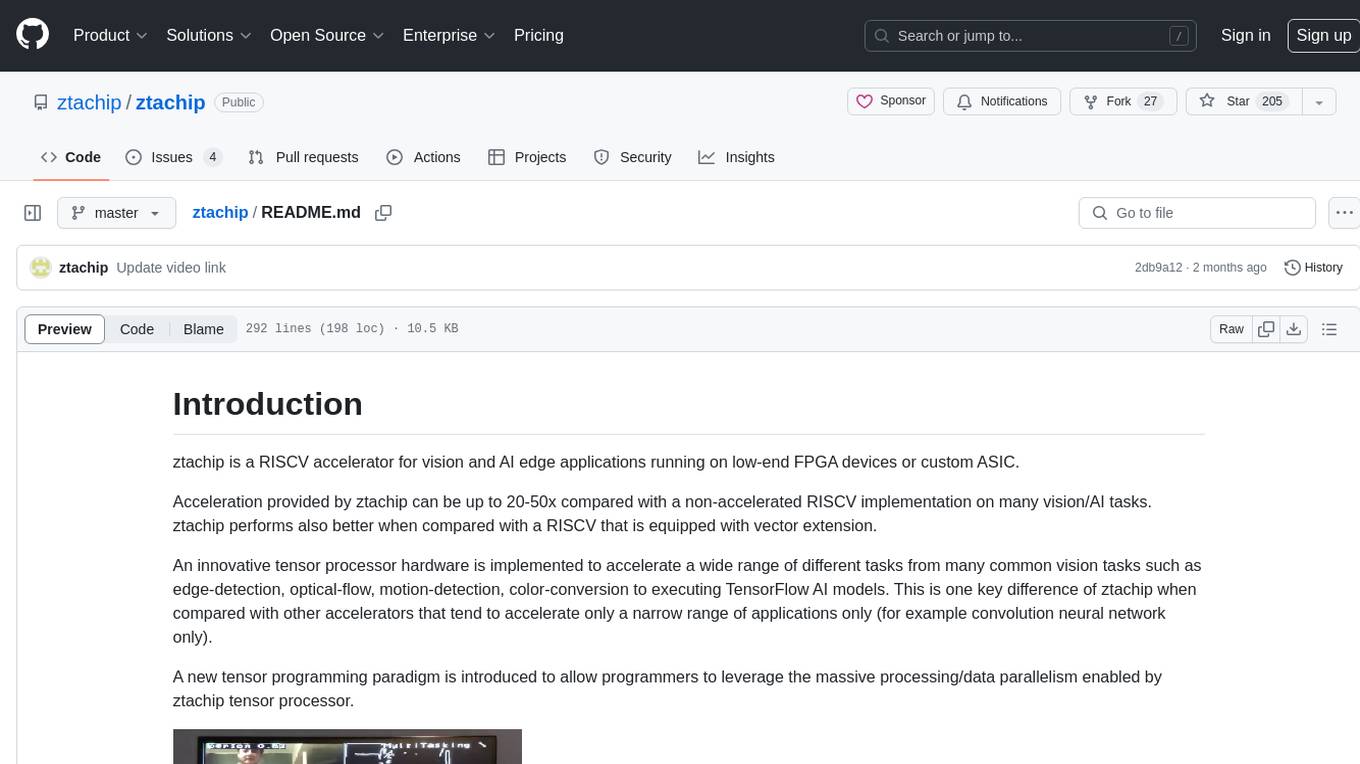
ztachip
ztachip is a RISCV accelerator designed for vision and AI edge applications, offering up to 20-50x acceleration compared to non-accelerated RISCV implementations. It features an innovative tensor processor hardware to accelerate various vision tasks and TensorFlow AI models. ztachip introduces a new tensor programming paradigm for massive processing/data parallelism. The repository includes technical documentation, code structure, build procedures, and reference design examples for running vision/AI applications on FPGA devices. Users can build ztachip as a standalone executable or a micropython port, and run various AI/vision applications like image classification, object detection, edge detection, motion detection, and multi-tasking on supported hardware.

griptape
Griptape is a modular Python framework for building AI-powered applications that securely connect to your enterprise data and APIs. It offers developers the ability to maintain control and flexibility at every step. Griptape's core components include Structures (Agents, Pipelines, and Workflows), Tasks, Tools, Memory (Conversation Memory, Task Memory, and Meta Memory), Drivers (Prompt and Embedding Drivers, Vector Store Drivers, Image Generation Drivers, Image Query Drivers, SQL Drivers, Web Scraper Drivers, and Conversation Memory Drivers), Engines (Query Engines, Extraction Engines, Summary Engines, Image Generation Engines, and Image Query Engines), and additional components (Rulesets, Loaders, Artifacts, Chunkers, and Tokenizers). Griptape enables developers to create AI-powered applications with ease and efficiency.
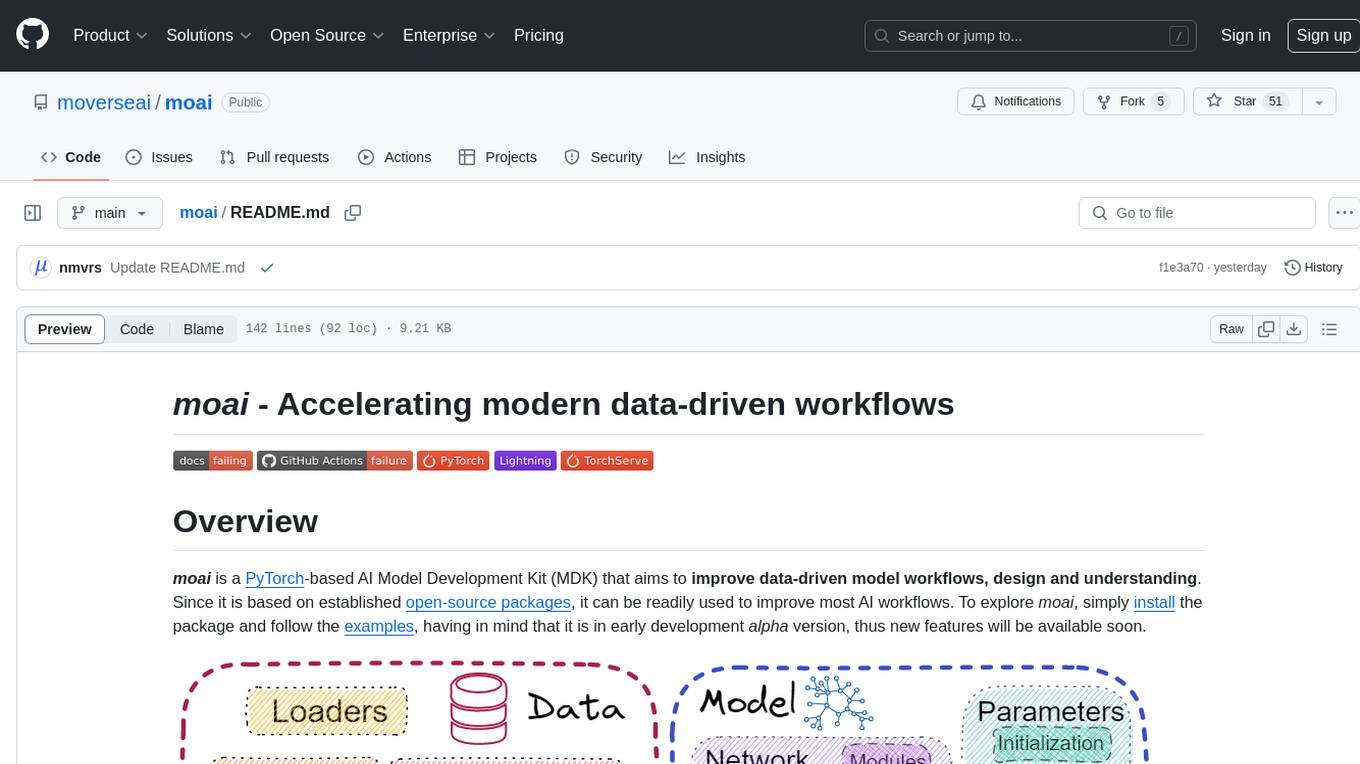
moai
moai is a PyTorch-based AI Model Development Kit (MDK) designed to improve data-driven model workflows, design, and understanding. It offers modularity via monads for model building blocks, reproducibility via configuration-based design, productivity via a data-driven domain modelling language (DML), extensibility via plugins, and understanding via inter-model performance and design aggregation. The tool provides specific integrated actions like play, train, evaluate, plot, diff, and reprod to support heavy data-driven workflows with analytics, knowledge extraction, and reproduction. moai relies on PyTorch, Lightning, Hydra, TorchServe, ONNX, Visdom, HiPlot, Kornia, Albumentations, and the wider open-source community for its functionalities.
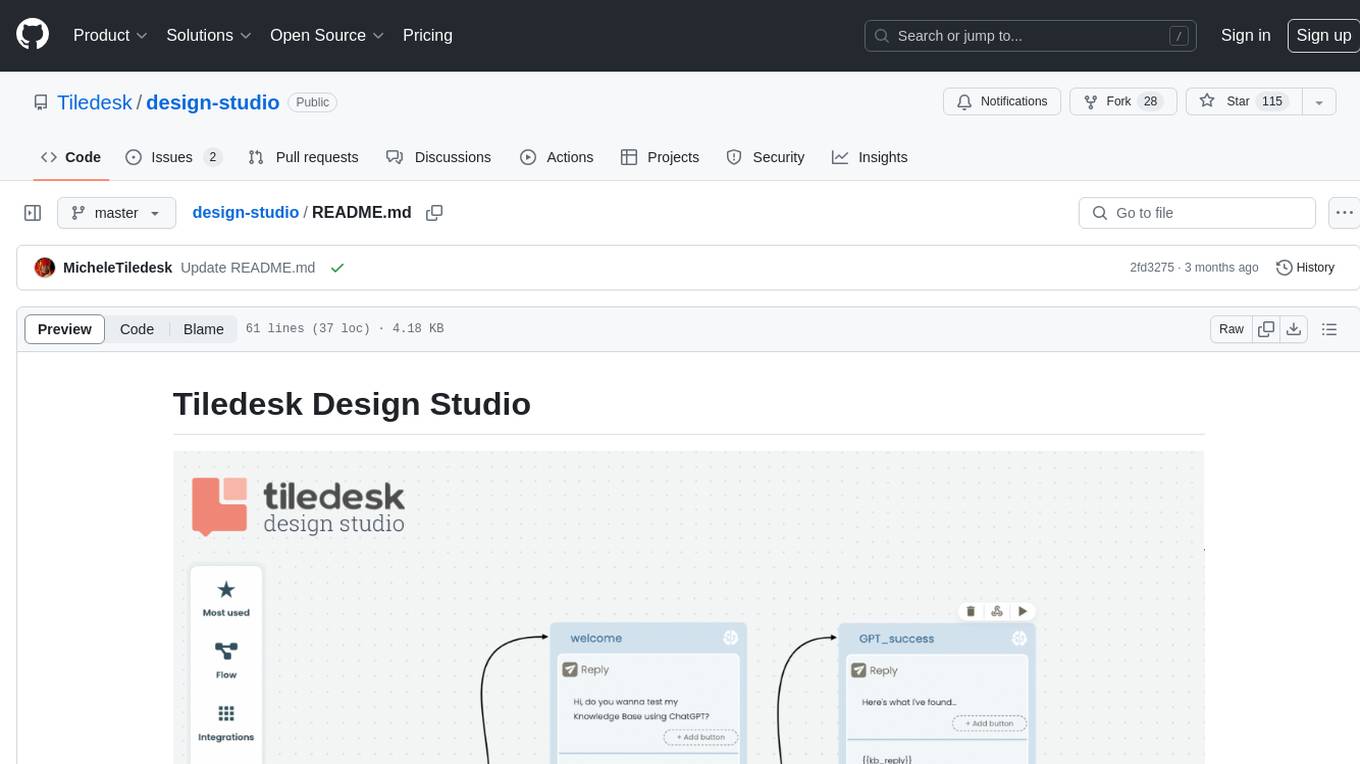
design-studio
Tiledesk Design Studio is an open-source, no-code development platform for creating chatbots and conversational apps. It offers a user-friendly, drag-and-drop interface with pre-ready actions and integrations. The platform combines the power of LLM/GPT AI with a flexible 'graph' approach for creating conversations and automations with ease. Users can automate customer conversations, prototype conversations, integrate ChatGPT, enhance user experience with multimedia, provide personalized product recommendations, set conditions, use random replies, connect to other tools like HubSpot CRM, integrate with WhatsApp, send emails, and seamlessly enhance existing setups.
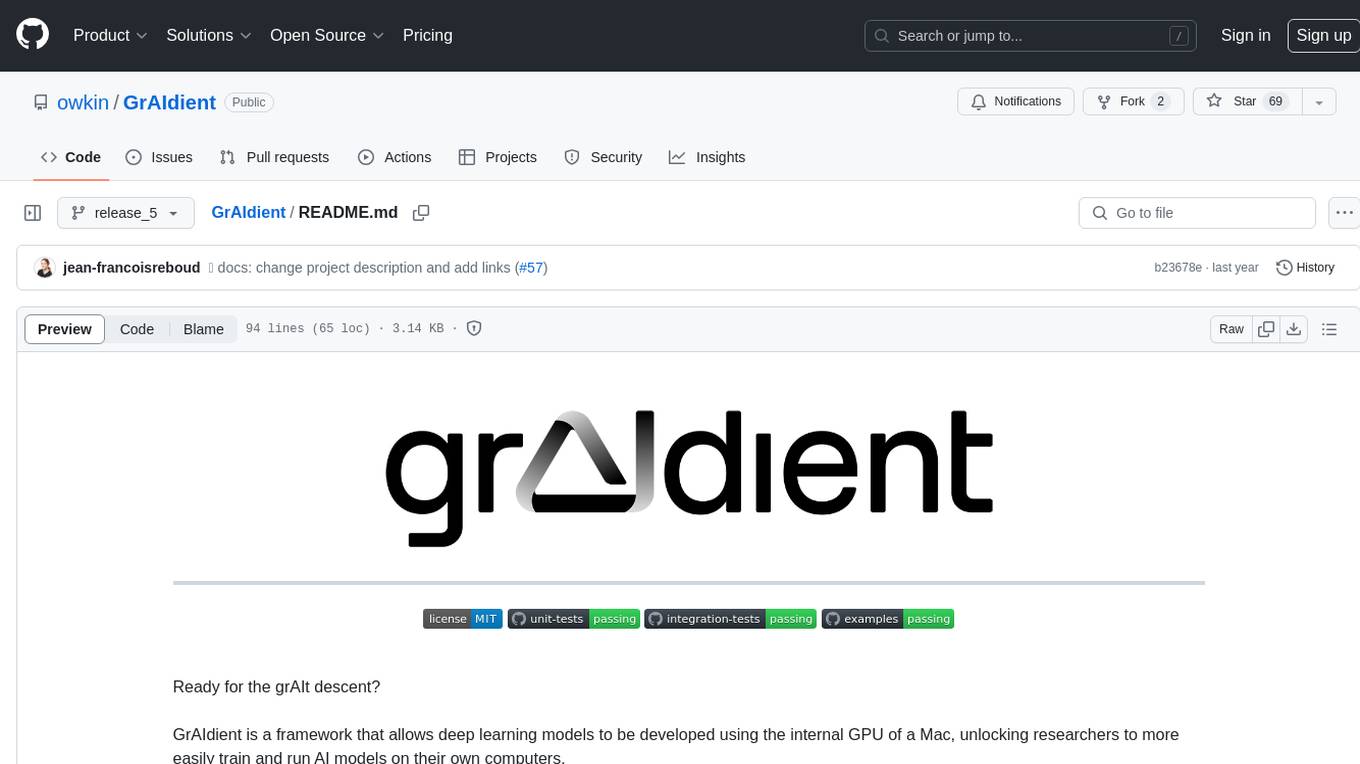
GrAIdient
GrAIdient is a framework designed to enable the development of deep learning models using the internal GPU of a Mac. It provides access to the graph of layers, allowing for unique model design with greater understanding, control, and reproducibility. The goal is to challenge the understanding of deep learning models, transitioning from black box to white box models. Key features include direct access to layers, native Mac GPU support, Swift language implementation, gradient checking, PyTorch interoperability, and more. The documentation covers main concepts, architecture, and examples. GrAIdient is MIT licensed.
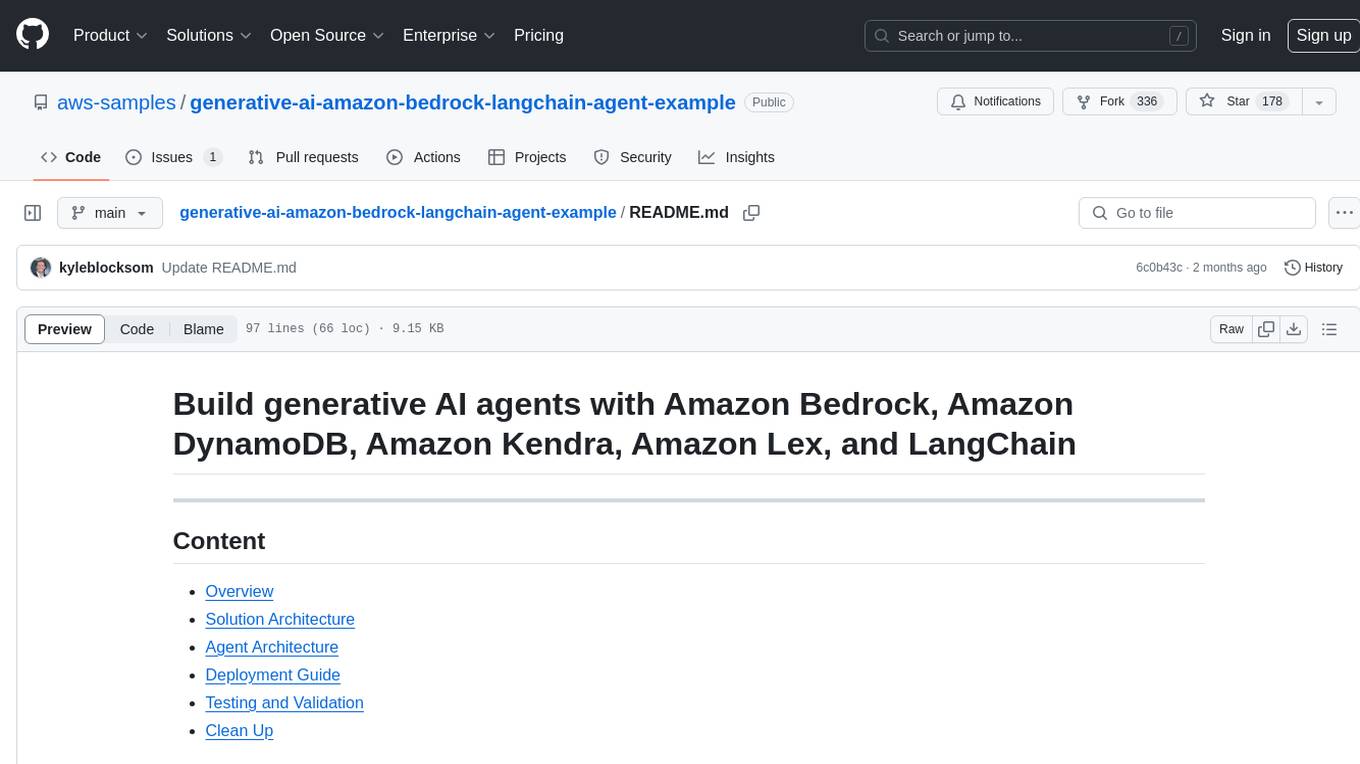
generative-ai-amazon-bedrock-langchain-agent-example
This repository provides a sample solution for building generative AI agents using Amazon Bedrock, Amazon DynamoDB, Amazon Kendra, Amazon Lex, and LangChain. The solution creates a generative AI financial services agent capable of assisting users with account information, loan applications, and answering natural language questions. It serves as a launchpad for developers to create personalized conversational agents for applications like chatbots and virtual assistants.
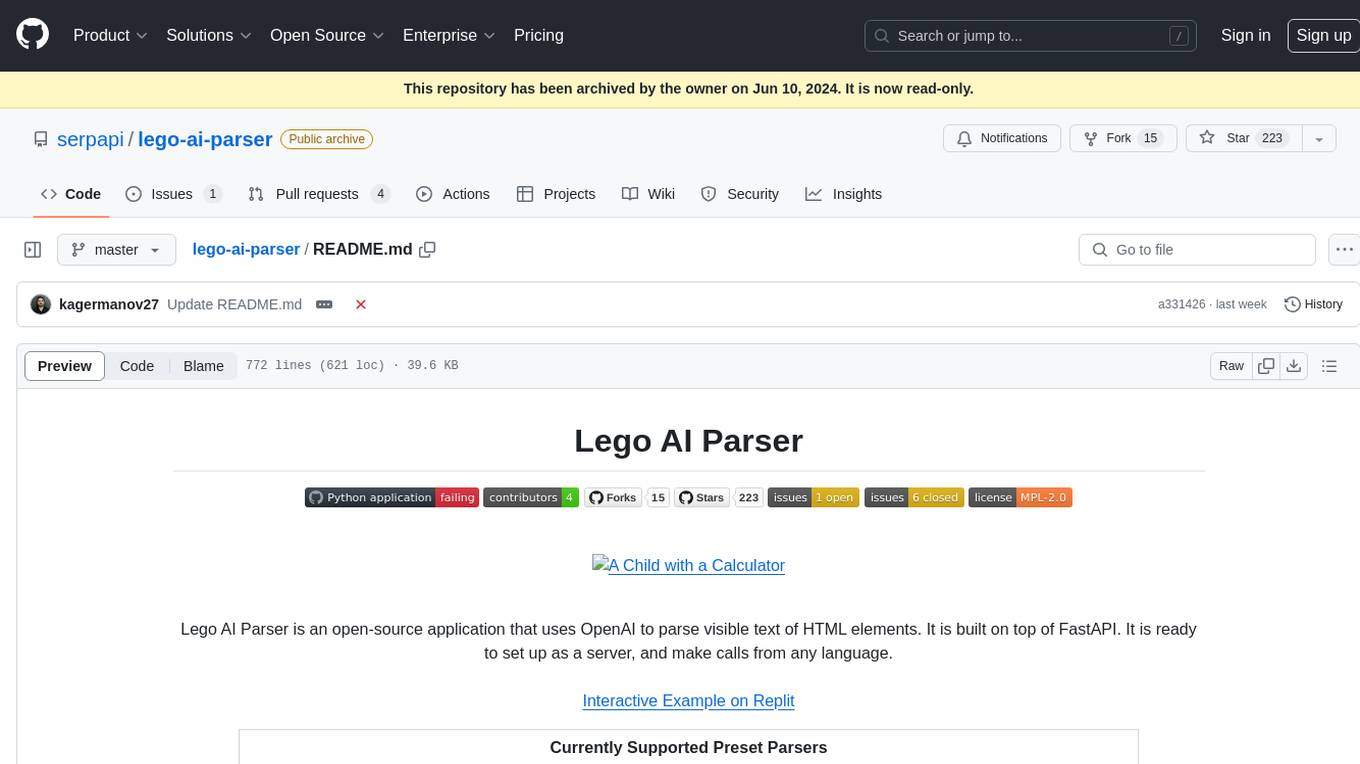
lego-ai-parser
Lego AI Parser is an open-source application that uses OpenAI to parse visible text of HTML elements. It is built on top of FastAPI, ready to set up as a server, and make calls from any language. It supports preset parsers for Google Local Results, Amazon Listings, Etsy Listings, Wayfair Listings, BestBuy Listings, Costco Listings, Macy's Listings, and Nordstrom Listings. Users can also design custom parsers by providing prompts, examples, and details about the OpenAI model under the classifier key.
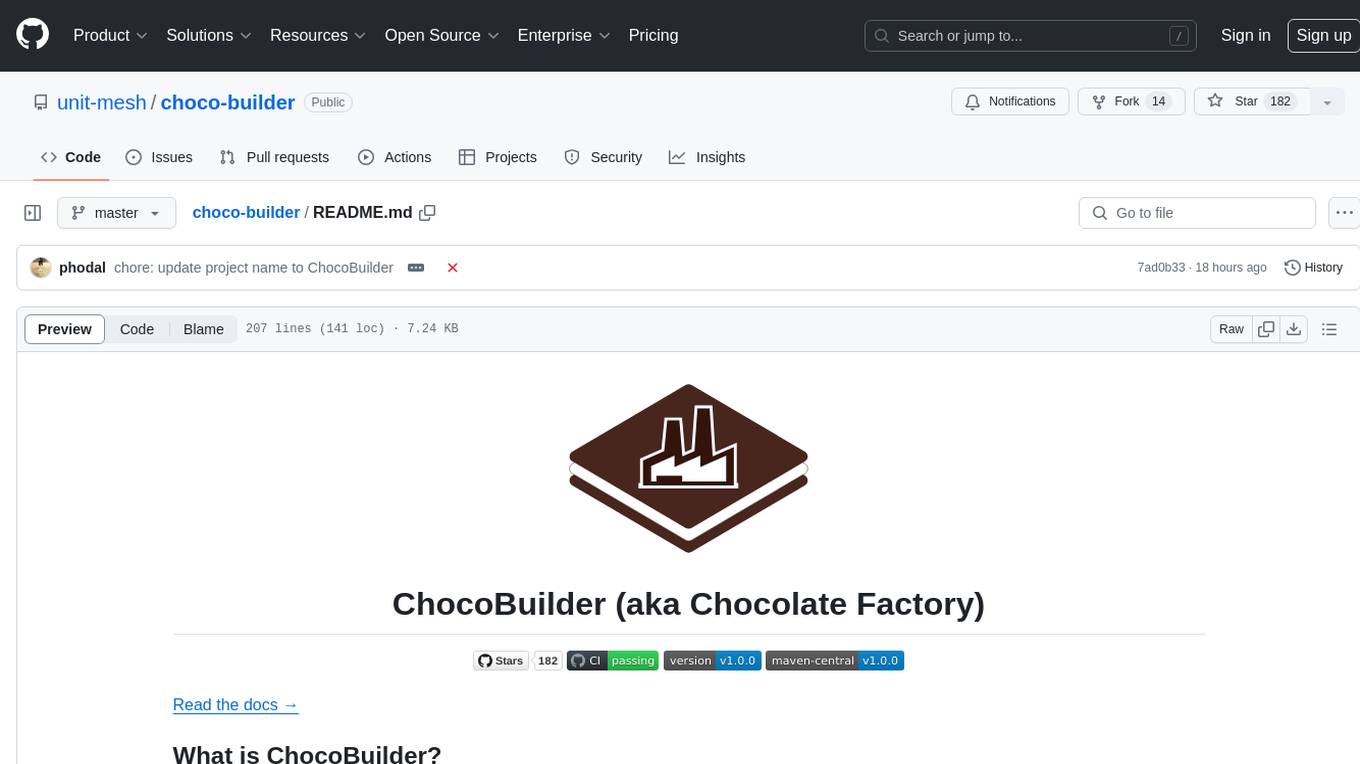
choco-builder
ChocoBuilder (aka Chocolate Factory) is an open-source LLM application development framework designed to help you easily create powerful software development SDLC + LLM generation assistants. It provides modules for integration into JVM projects, usage with RAGScript, and local deployment examples. ChocoBuilder follows a Domain Driven Problem-Solving design philosophy with key concepts like ProblemClarifier, ProblemAnalyzer, SolutionDesigner, SolutionReviewer, and SolutionExecutor. It offers use cases for desktop/IDE, server, and Android applications, with examples for frontend design, semantic code search, testcase generation, and code interpretation.
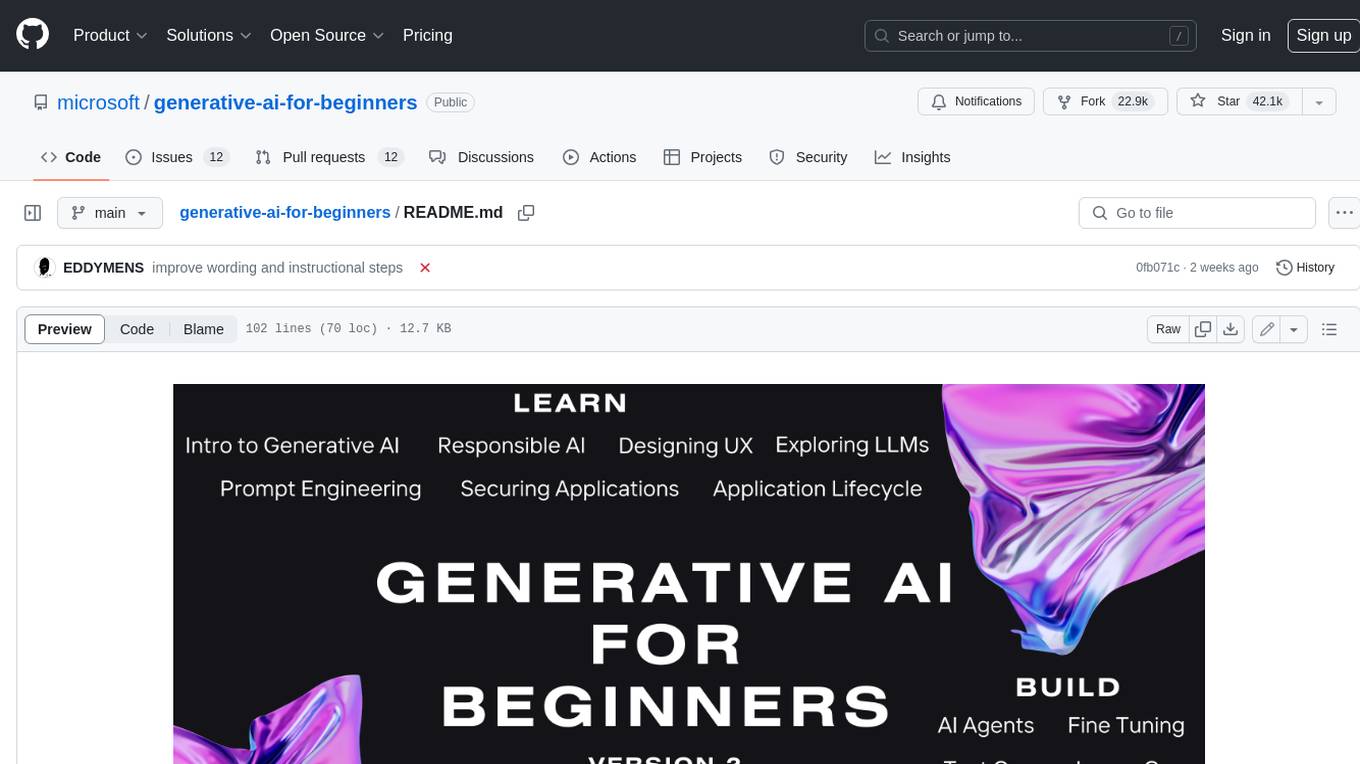
generative-ai-for-beginners
This course has 18 lessons. Each lesson covers its own topic so start wherever you like! Lessons are labeled either "Learn" lessons explaining a Generative AI concept or "Build" lessons that explain a concept and code examples in both **Python** and **TypeScript** when possible. Each lesson also includes a "Keep Learning" section with additional learning tools. **What You Need** * Access to the Azure OpenAI Service **OR** OpenAI API - _Only required to complete coding lessons_ * Basic knowledge of Python or Typescript is helpful - *For absolute beginners check out these Python and TypeScript courses. * A Github account to fork this entire repo to your own GitHub account We have created a **Course Setup** lesson to help you with setting up your development environment. Don't forget to star (🌟) this repo to find it easier later. ## 🧠 Ready to Deploy? If you are looking for more advanced code samples, check out our collection of Generative AI Code Samples in both **Python** and **TypeScript**. ## 🗣️ Meet Other Learners, Get Support Join our official AI Discord server to meet and network with other learners taking this course and get support. ## 🚀 Building a Startup? Sign up for Microsoft for Startups Founders Hub to receive **free OpenAI credits** and up to **$150k towards Azure credits to access OpenAI models through Azure OpenAI Services**. ## 🙏 Want to help? Do you have suggestions or found spelling or code errors? Raise an issue or Create a pull request ## 📂 Each lesson includes: * A short video introduction to the topic * A written lesson located in the README * Python and TypeScript code samples supporting Azure OpenAI and OpenAI API * Links to extra resources to continue your learning ## 🗃️ Lessons | | Lesson Link | Description | Additional Learning | | :-: | :------------------------------------------------------------------------------------------------------------------------------------------: | :---------------------------------------------------------------------------------------------: | ------------------------------------------------------------------------------ | | 00 | Course Setup | **Learn:** How to Setup Your Development Environment | Learn More | | 01 | Introduction to Generative AI and LLMs | **Learn:** Understanding what Generative AI is and how Large Language Models (LLMs) work. | Learn More | | 02 | Exploring and comparing different LLMs | **Learn:** How to select the right model for your use case | Learn More | | 03 | Using Generative AI Responsibly | **Learn:** How to build Generative AI Applications responsibly | Learn More | | 04 | Understanding Prompt Engineering Fundamentals | **Learn:** Hands-on Prompt Engineering Best Practices | Learn More | | 05 | Creating Advanced Prompts | **Learn:** How to apply prompt engineering techniques that improve the outcome of your prompts. | Learn More | | 06 | Building Text Generation Applications | **Build:** A text generation app using Azure OpenAI | Learn More | | 07 | Building Chat Applications | **Build:** Techniques for efficiently building and integrating chat applications. | Learn More | | 08 | Building Search Apps Vector Databases | **Build:** A search application that uses Embeddings to search for data. | Learn More | | 09 | Building Image Generation Applications | **Build:** A image generation application | Learn More | | 10 | Building Low Code AI Applications | **Build:** A Generative AI application using Low Code tools | Learn More | | 11 | Integrating External Applications with Function Calling | **Build:** What is function calling and its use cases for applications | Learn More | | 12 | Designing UX for AI Applications | **Learn:** How to apply UX design principles when developing Generative AI Applications | Learn More | | 13 | Securing Your Generative AI Applications | **Learn:** The threats and risks to AI systems and methods to secure these systems. | Learn More | | 14 | The Generative AI Application Lifecycle | **Learn:** The tools and metrics to manage the LLM Lifecycle and LLMOps | Learn More | | 15 | Retrieval Augmented Generation (RAG) and Vector Databases | **Build:** An application using a RAG Framework to retrieve embeddings from a Vector Databases | Learn More | | 16 | Open Source Models and Hugging Face | **Build:** An application using open source models available on Hugging Face | Learn More | | 17 | AI Agents | **Build:** An application using an AI Agent Framework | Learn More | | 18 | Fine-Tuning LLMs | **Learn:** The what, why and how of fine-tuning LLMs | Learn More |
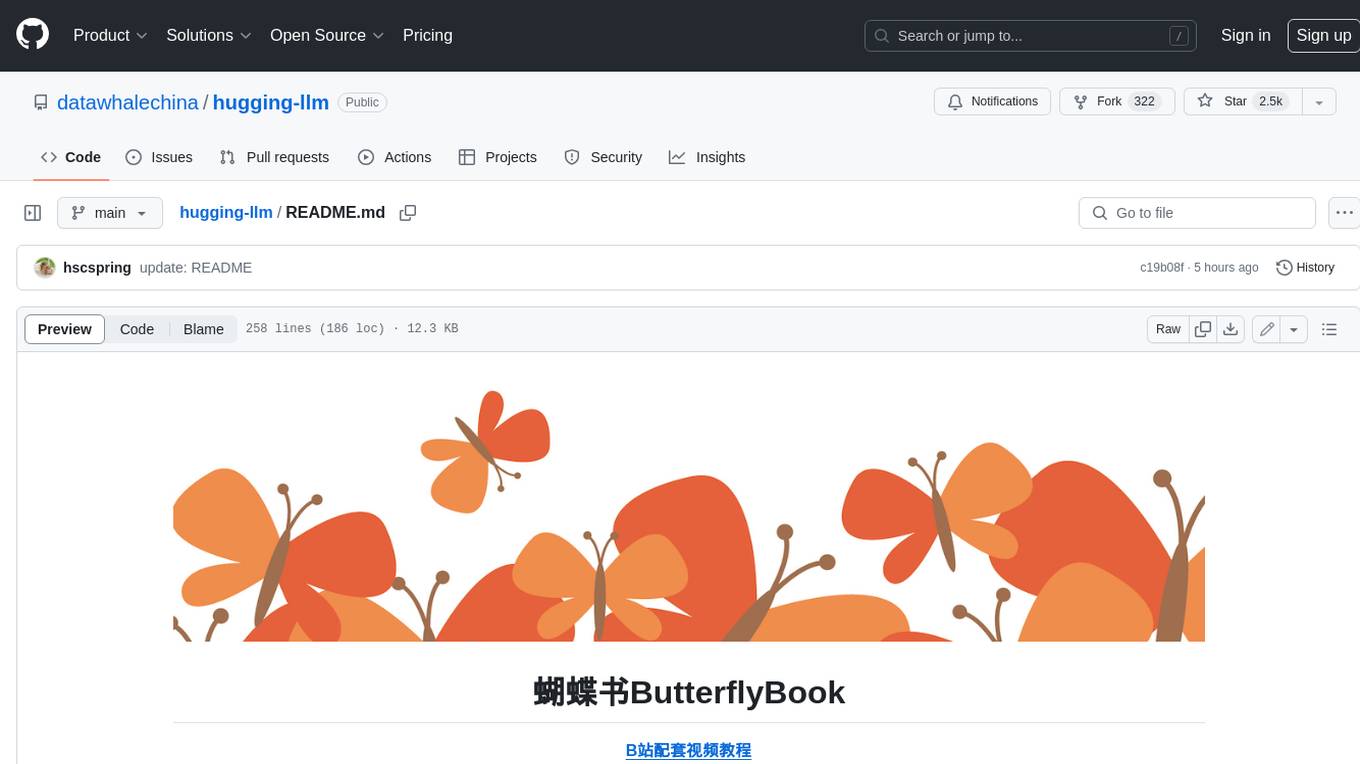
hugging-llm
HuggingLLM is a project that aims to introduce ChatGPT to a wider audience, particularly those interested in using the technology to create new products or applications. The project focuses on providing practical guidance on how to use ChatGPT-related APIs to create new features and applications. It also includes detailed background information and system design introductions for relevant tasks, as well as example code and implementation processes. The project is designed for individuals with some programming experience who are interested in using ChatGPT for practical applications, and it encourages users to experiment and create their own applications and demos.
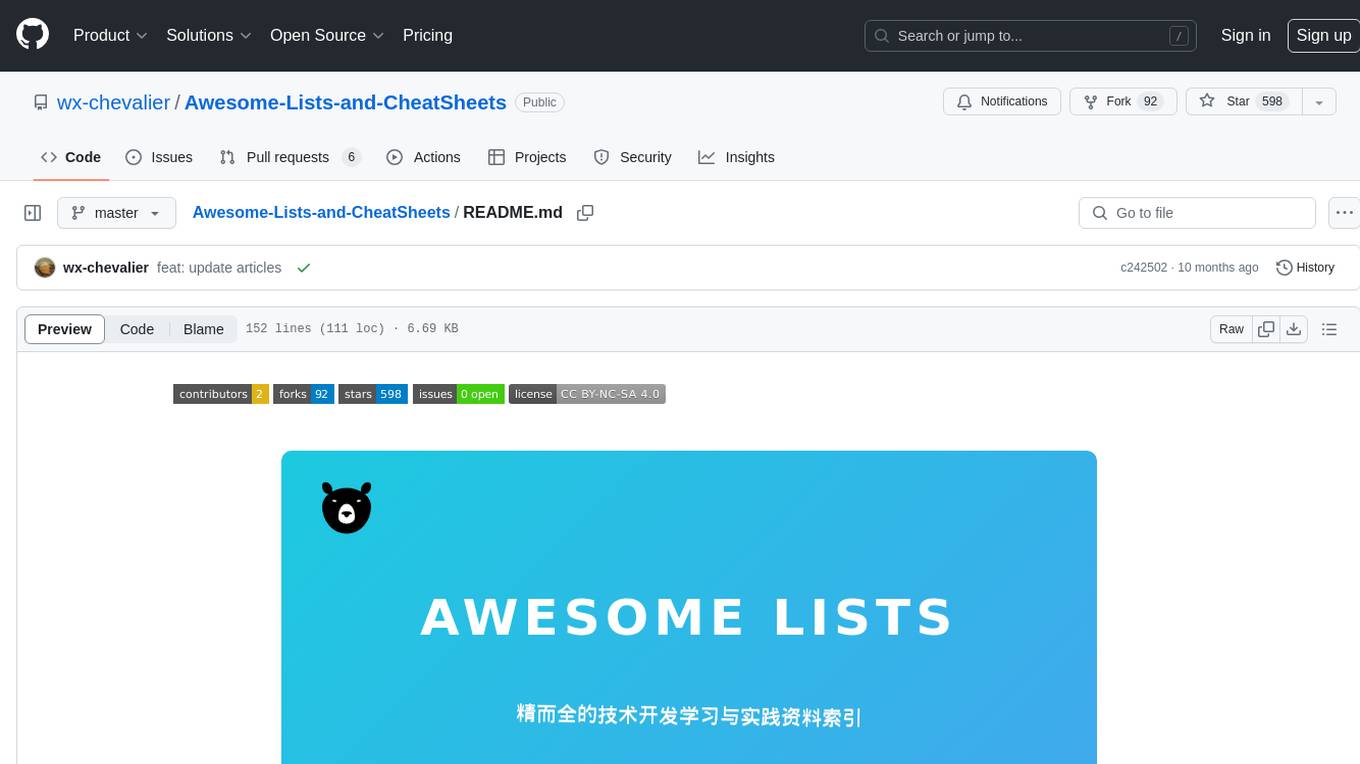
Awesome-Lists-and-CheatSheets
Awesome-Lists is a curated index of selected resources spanning various fields including programming languages and theories, web and frontend development, server-side development and infrastructure, cloud computing and big data, data science and artificial intelligence, product design, etc. It includes articles, books, courses, examples, open-source projects, and more. The repository categorizes resources according to the knowledge system of different domains, aiming to provide valuable and concise material indexes for readers. Users can explore and learn from a wide range of high-quality resources in a systematic way.
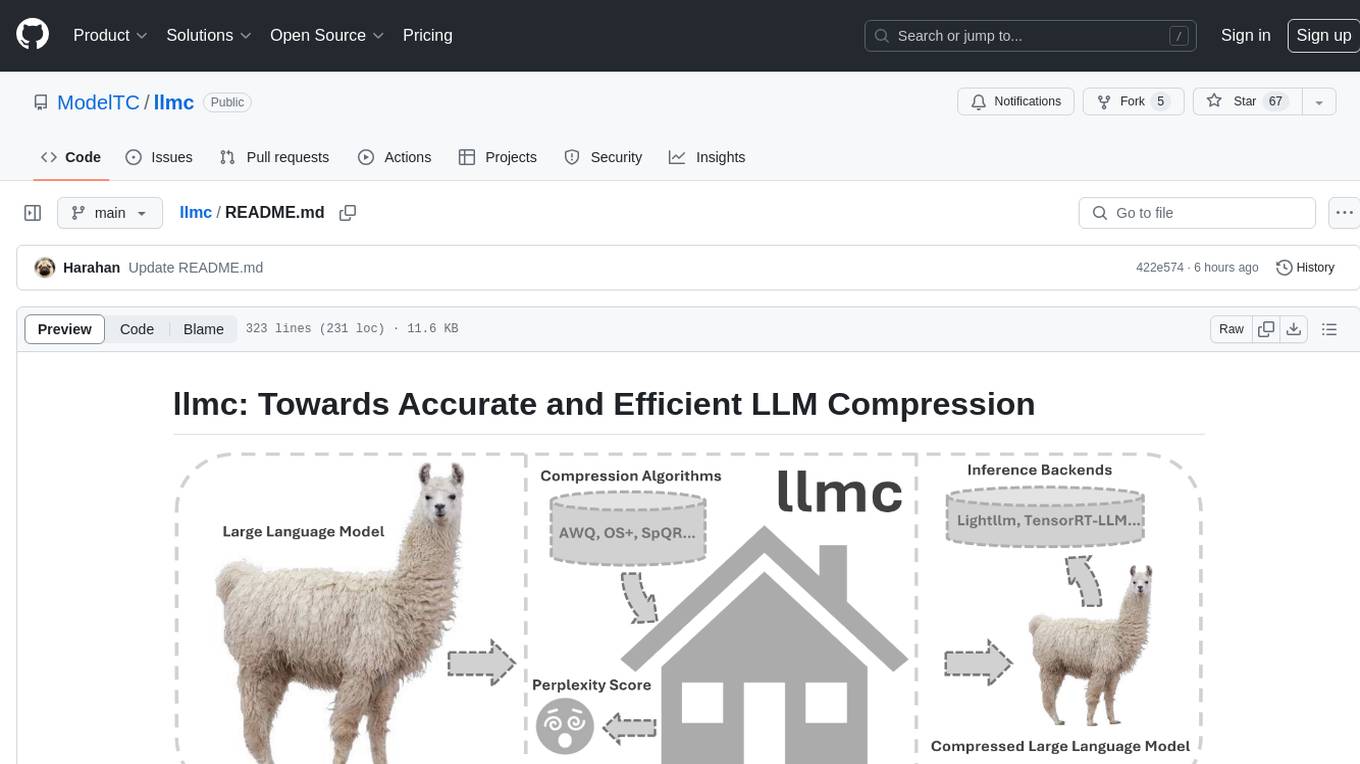
llmc
llmc is an off-the-shell tool designed for compressing LLM, leveraging state-of-the-art compression algorithms to enhance efficiency and reduce model size without compromising performance. It provides users with the ability to quantize LLMs, choose from various compression algorithms, export transformed models for further optimization, and directly infer compressed models with a shallow memory footprint. The tool supports a range of model types and quantization algorithms, with ongoing development to include pruning techniques. Users can design their configurations for quantization and evaluation, with documentation and examples planned for future updates. llmc is a valuable resource for researchers working on post-training quantization of large language models.
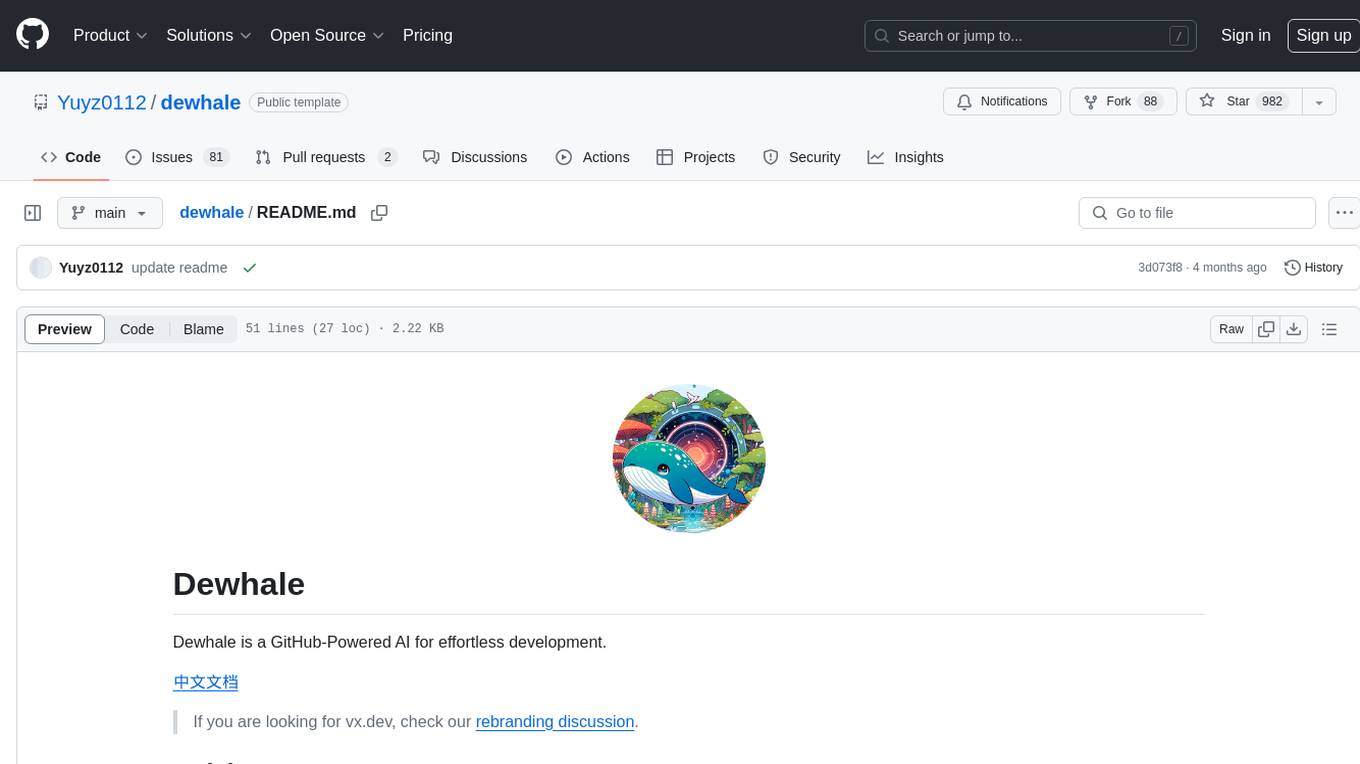
dewhale
Dewhale is a GitHub-Powered AI tool designed for effortless development. It utilizes prompt engineering techniques under the GPT-4 model to issue commands, allowing users to generate code with lower usage costs and easy customization. The tool seamlessly integrates with GitHub, providing version control, code review, and collaborative features. Users can join discussions on the design philosophy of Dewhale and explore detailed instructions and examples for setting up and using the tool.
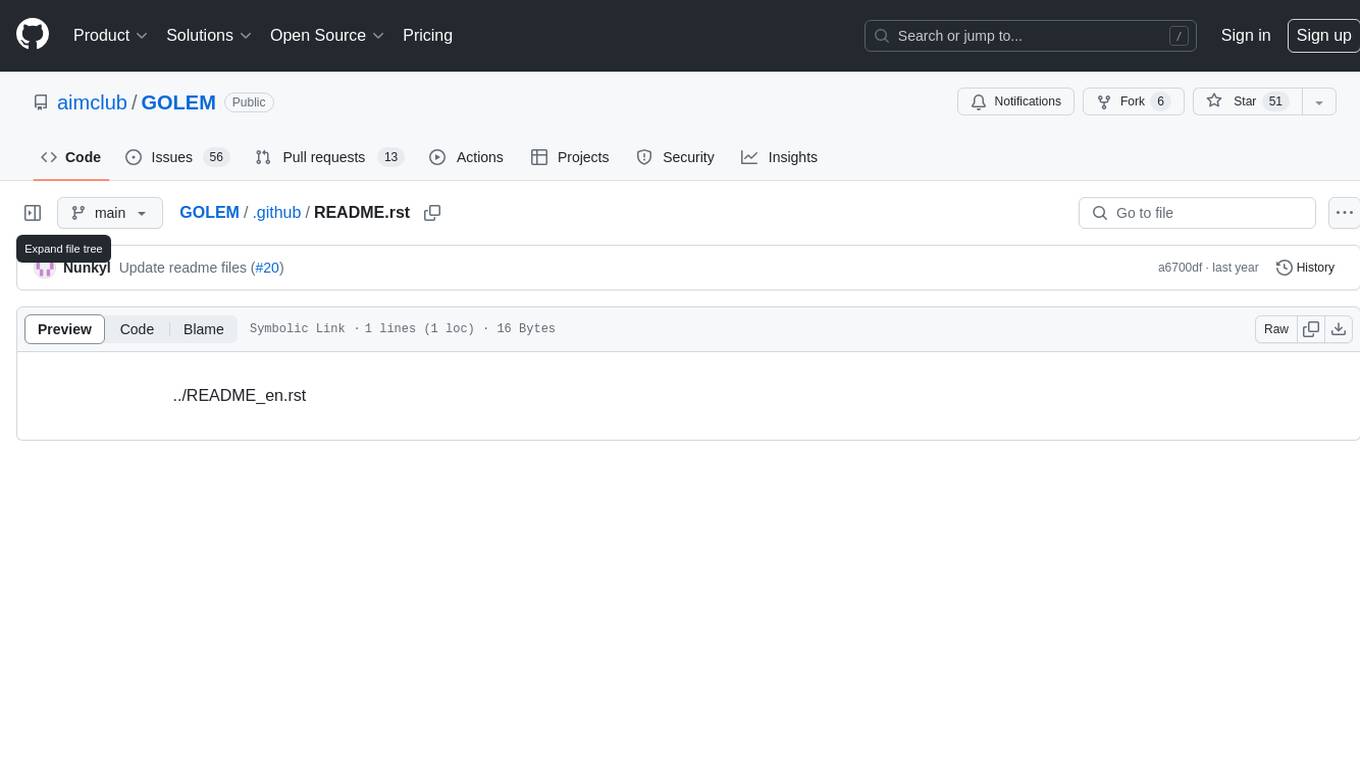
GOLEM
GOLEM is an open-source AI framework focused on optimization and learning of structured graph-based models using meta-heuristic methods. It emphasizes the potential of meta-heuristics in complex problem spaces where gradient-based methods are not suitable, and the importance of structured models in various problem domains. The framework offers features like structured model optimization, metaheuristic methods, multi-objective optimization, constrained optimization, extensibility, interpretability, and reproducibility. It can be applied to optimization problems represented as directed graphs with defined fitness functions. GOLEM has applications in areas like AutoML, Bayesian network structure search, differential equation discovery, geometric design, and neural architecture search. The project structure includes packages for core functionalities, adapters, graph representation, optimizers, genetic algorithms, utilities, serialization, visualization, examples, and testing. Contributions are welcome, and the project is supported by ITMO University's Research Center Strong Artificial Intelligence in Industry.
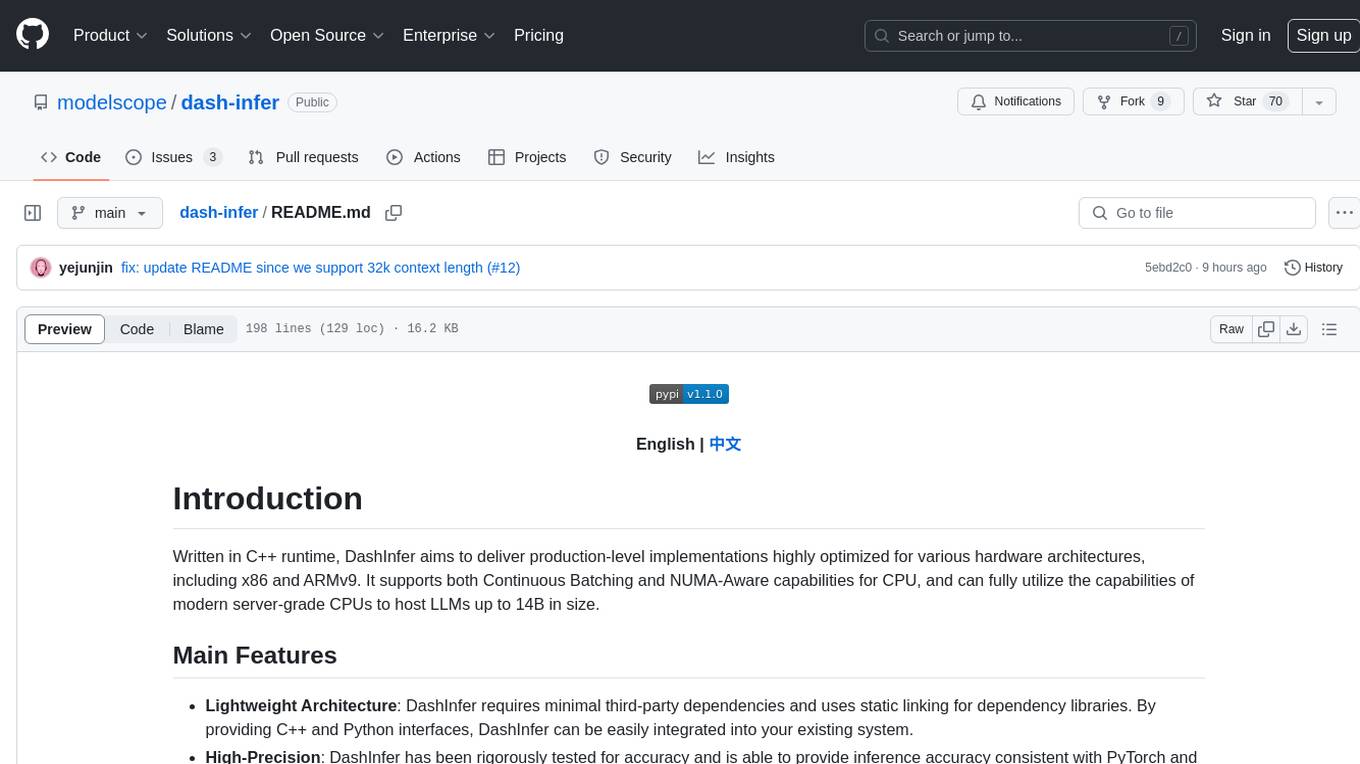
dash-infer
DashInfer is a C++ runtime tool designed to deliver production-level implementations highly optimized for various hardware architectures, including x86 and ARMv9. It supports Continuous Batching and NUMA-Aware capabilities for CPU, and can fully utilize modern server-grade CPUs to host large language models (LLMs) up to 14B in size. With lightweight architecture, high precision, support for mainstream open-source LLMs, post-training quantization, optimized computation kernels, NUMA-aware design, and multi-language API interfaces, DashInfer provides a versatile solution for efficient inference tasks. It supports x86 CPUs with AVX2 instruction set and ARMv9 CPUs with SVE instruction set, along with various data types like FP32, BF16, and InstantQuant. DashInfer also offers single-NUMA and multi-NUMA architectures for model inference, with detailed performance tests and inference accuracy evaluations available. The tool is supported on mainstream Linux server operating systems and provides documentation and examples for easy integration and usage.

beehave
Beehave is a powerful addon for Godot Engine that enables users to create robust AI systems using behavior trees. It simplifies the design of complex NPC behaviors, challenging boss battles, and other advanced setups. Beehave allows for the creation of highly adaptive AI that responds to changes in the game world and overcomes unexpected obstacles, catering to both beginners and experienced developers. The tool is currently in development for version 3.0.
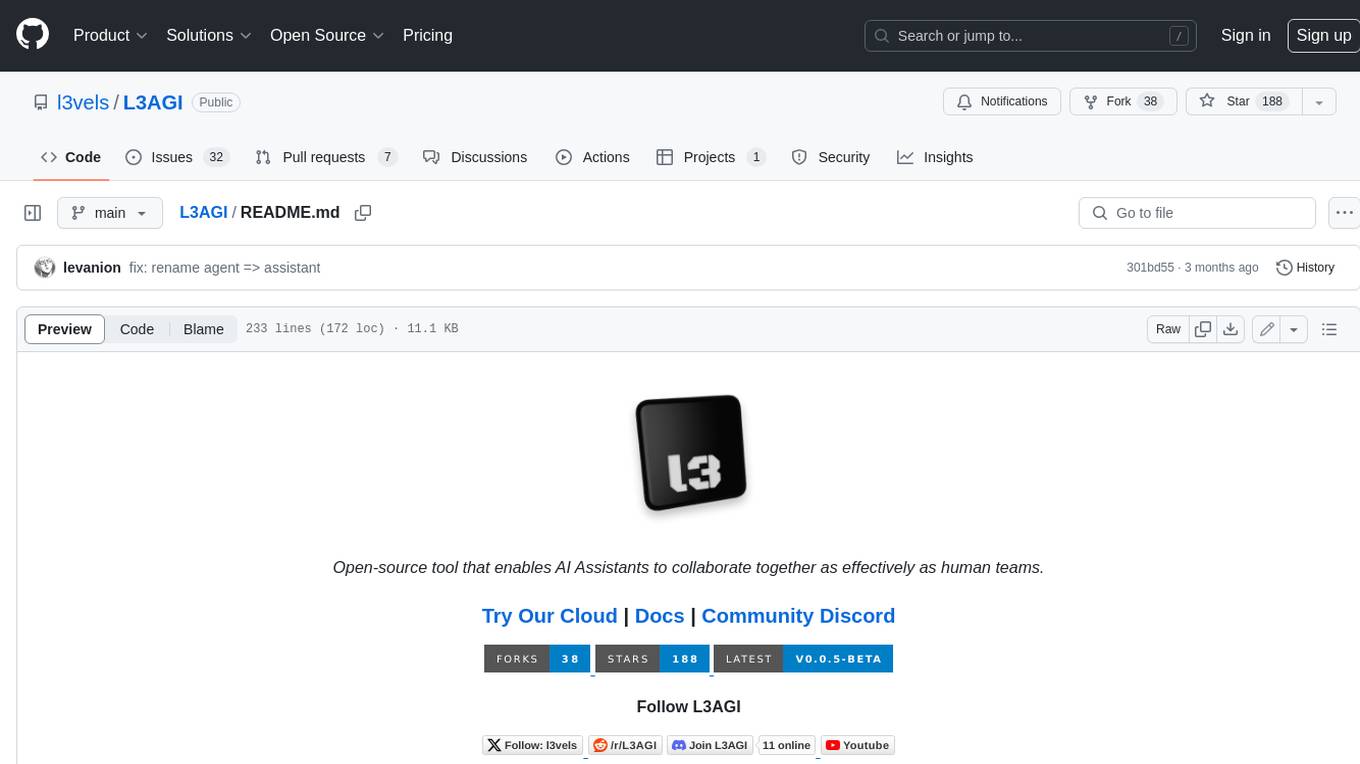
L3AGI
L3AGI is an open-source tool that enables AI Assistants to collaborate together as effectively as human teams. It provides a robust set of functionalities that empower users to design, supervise, and execute both autonomous AI Assistants and Teams of Assistants. Key features include the ability to create and manage Teams of AI Assistants, design and oversee standalone AI Assistants, equip AI Assistants with the ability to retain and recall information, connect AI Assistants to an array of data sources for efficient information retrieval and processing, and employ curated sets of tools for specific tasks. L3AGI also offers a user-friendly interface, APIs for integration with other systems, and a vibrant community for support and collaboration.
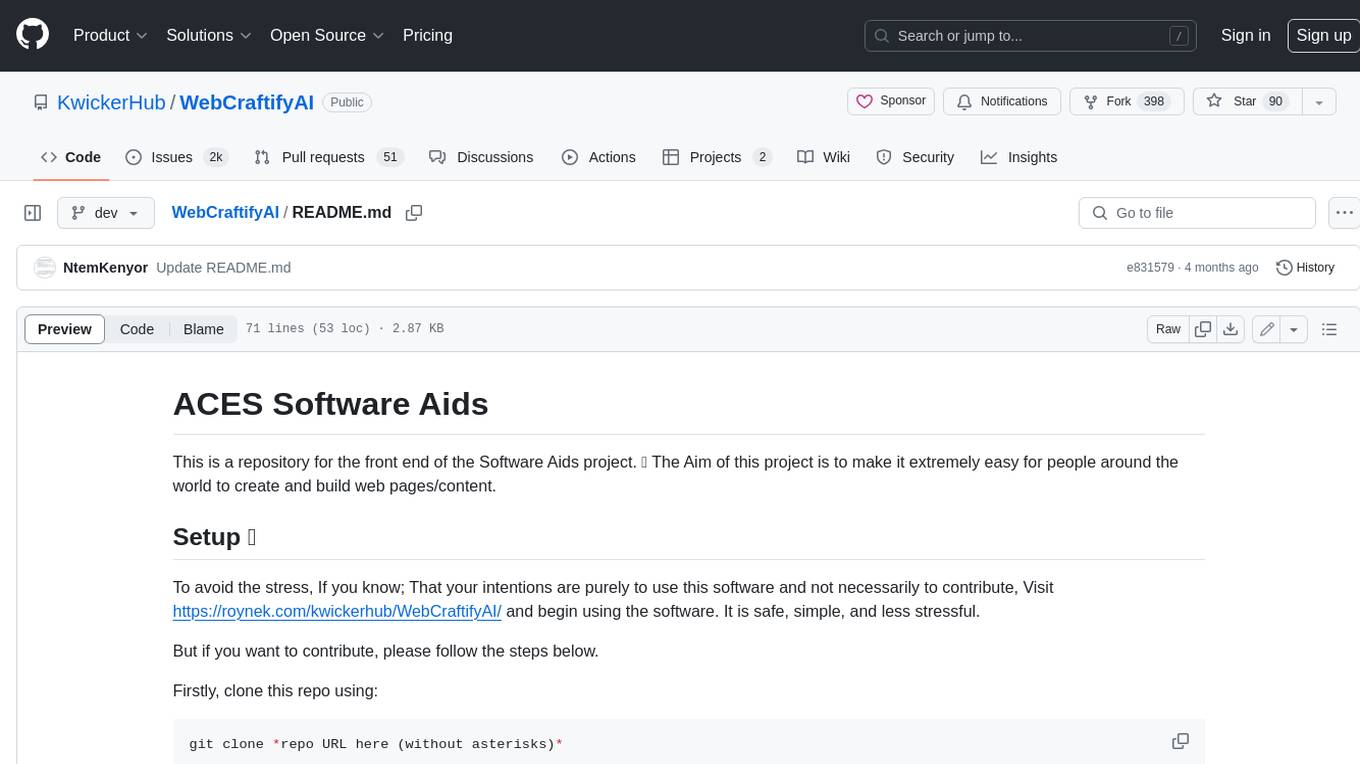
WebCraftifyAI
WebCraftifyAI is a software aid that makes it easy to create and build web pages and content. It is designed to be user-friendly and accessible to people of all skill levels. With WebCraftifyAI, you can quickly and easily create professional-looking websites without having to learn complex coding or design skills.
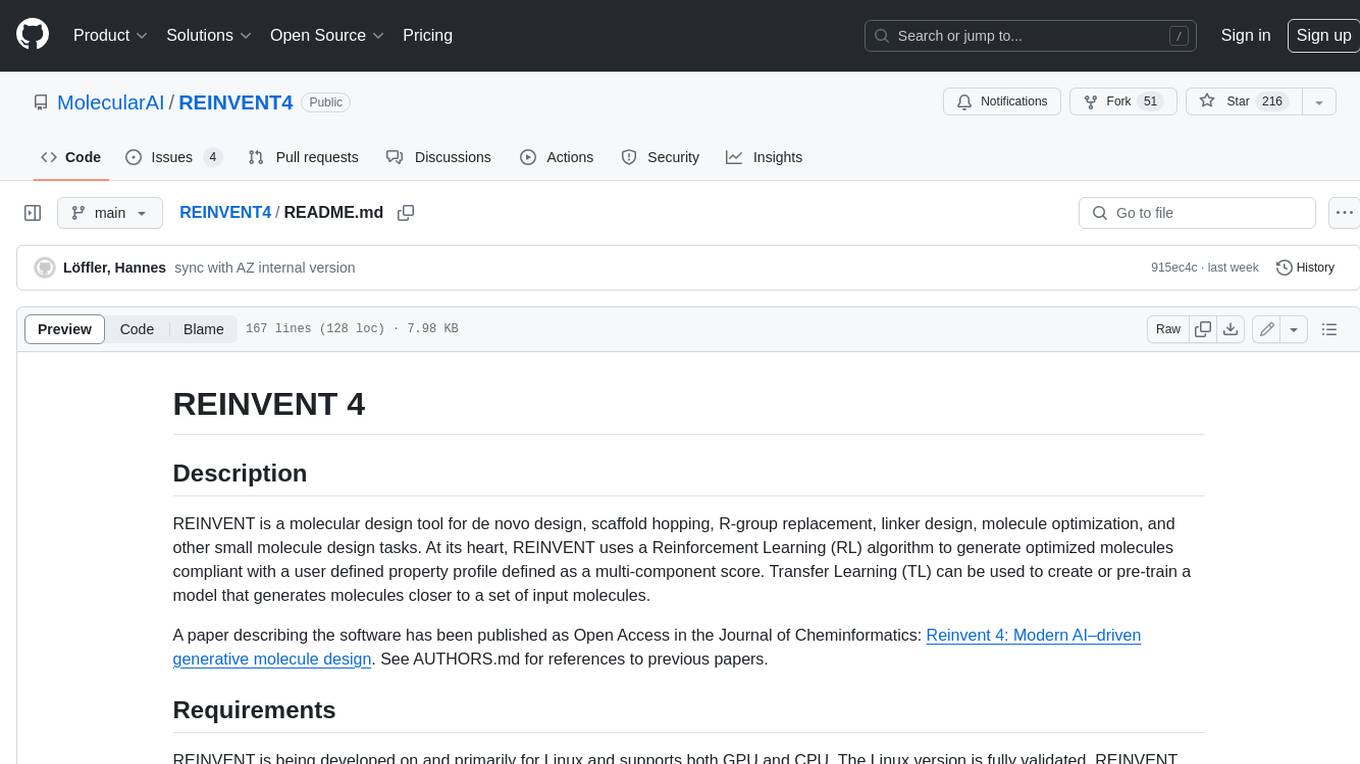
REINVENT4
REINVENT is a molecular design tool for de novo design, scaffold hopping, R-group replacement, linker design, molecule optimization, and other small molecule design tasks. It uses a Reinforcement Learning (RL) algorithm to generate optimized molecules compliant with a user-defined property profile defined as a multi-component score. Transfer Learning (TL) can be used to create or pre-train a model that generates molecules closer to a set of input molecules.
20 - OpenAI Gpts
3D Modeler and Scripter Assistant
Specialist in 3D modeling, scripting, and fractal design.
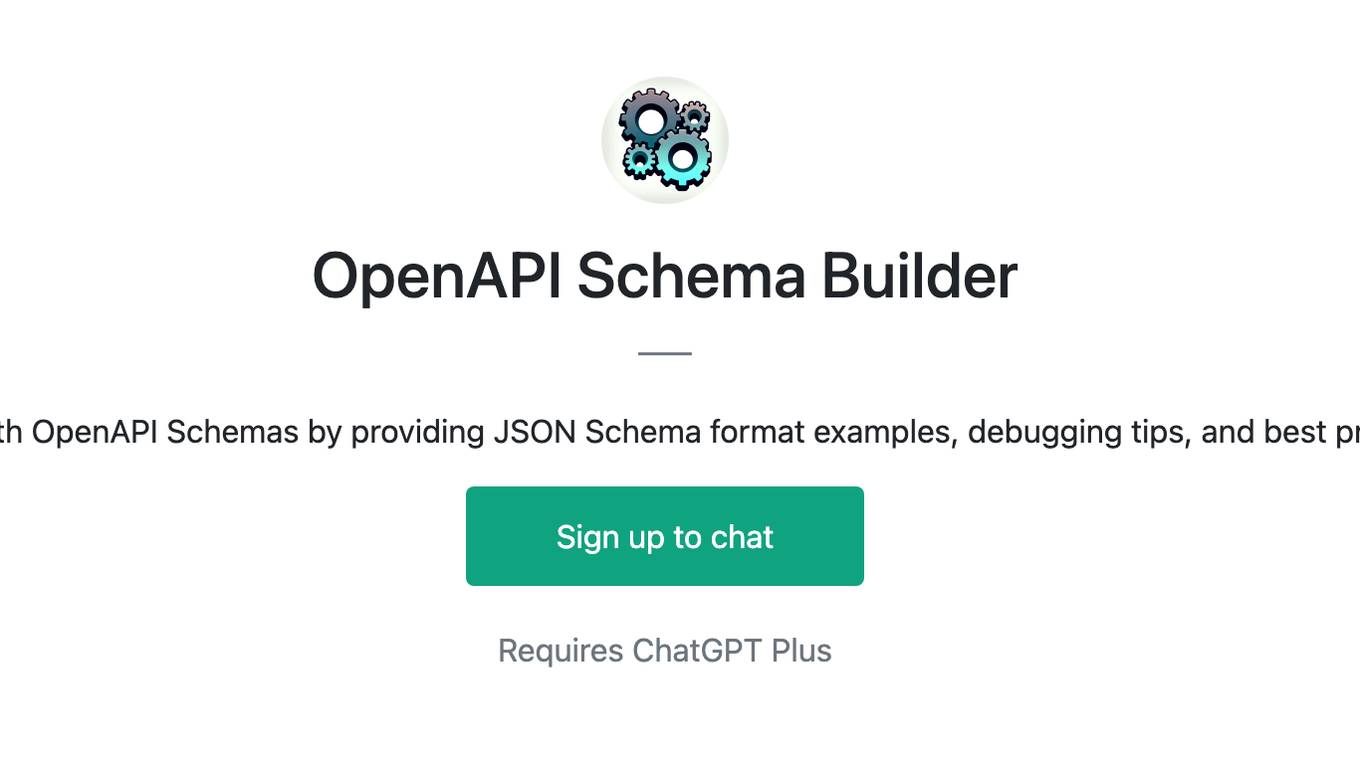
OpenAPI Schema Builder
Assists with OpenAPI Schemas by providing JSON Schema format examples, debugging tips, and best practices.
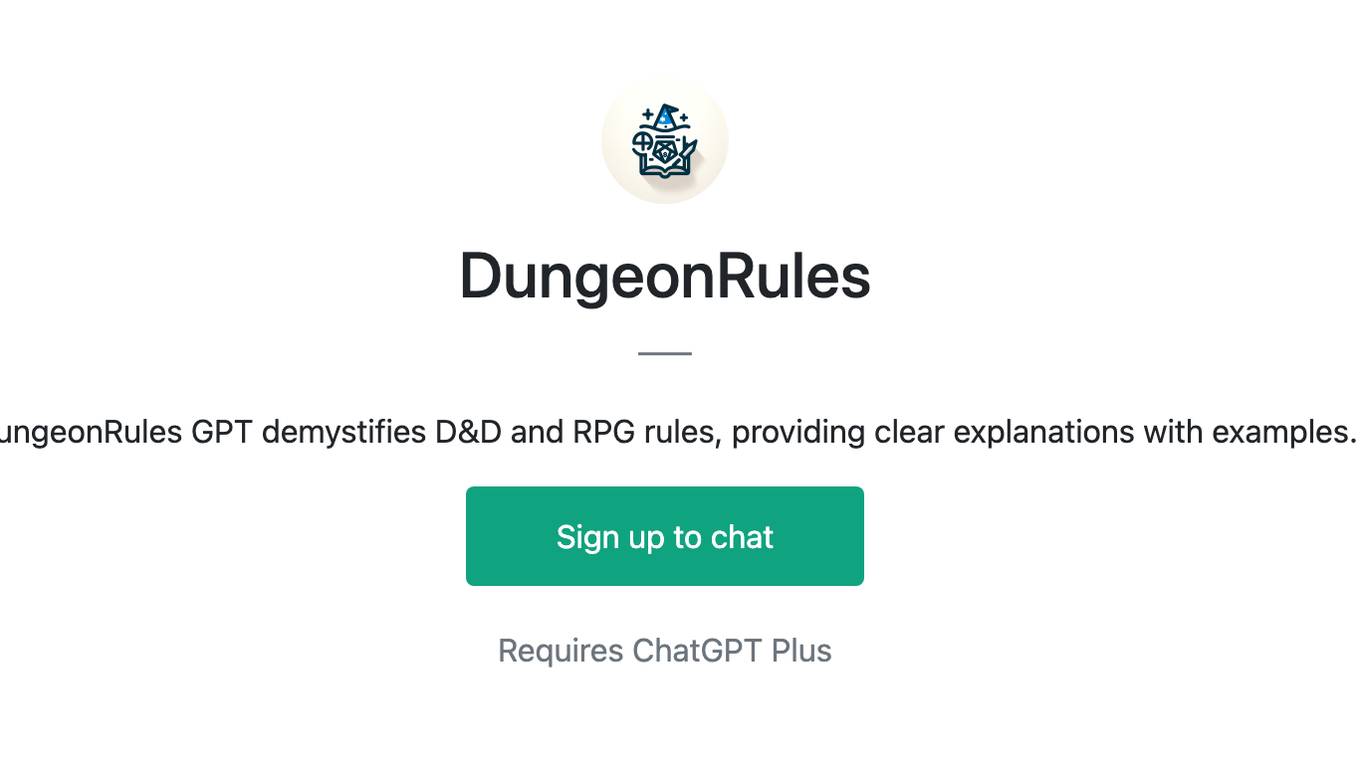
DungeonRules
DungeonRules GPT demystifies D&D and RPG rules, providing clear explanations with examples.

What's Your Fragrance Vibe
An intutive perfumer to suggests new scents for any setting or scenario you can imagine. Example: "I want to smell like a 1996 Honda Prelude on a cold winter's day."
Study GPT (Mechanics & Dynamics)
Mechanical Engineering GPT to help study Mechanics & Dynamics topics
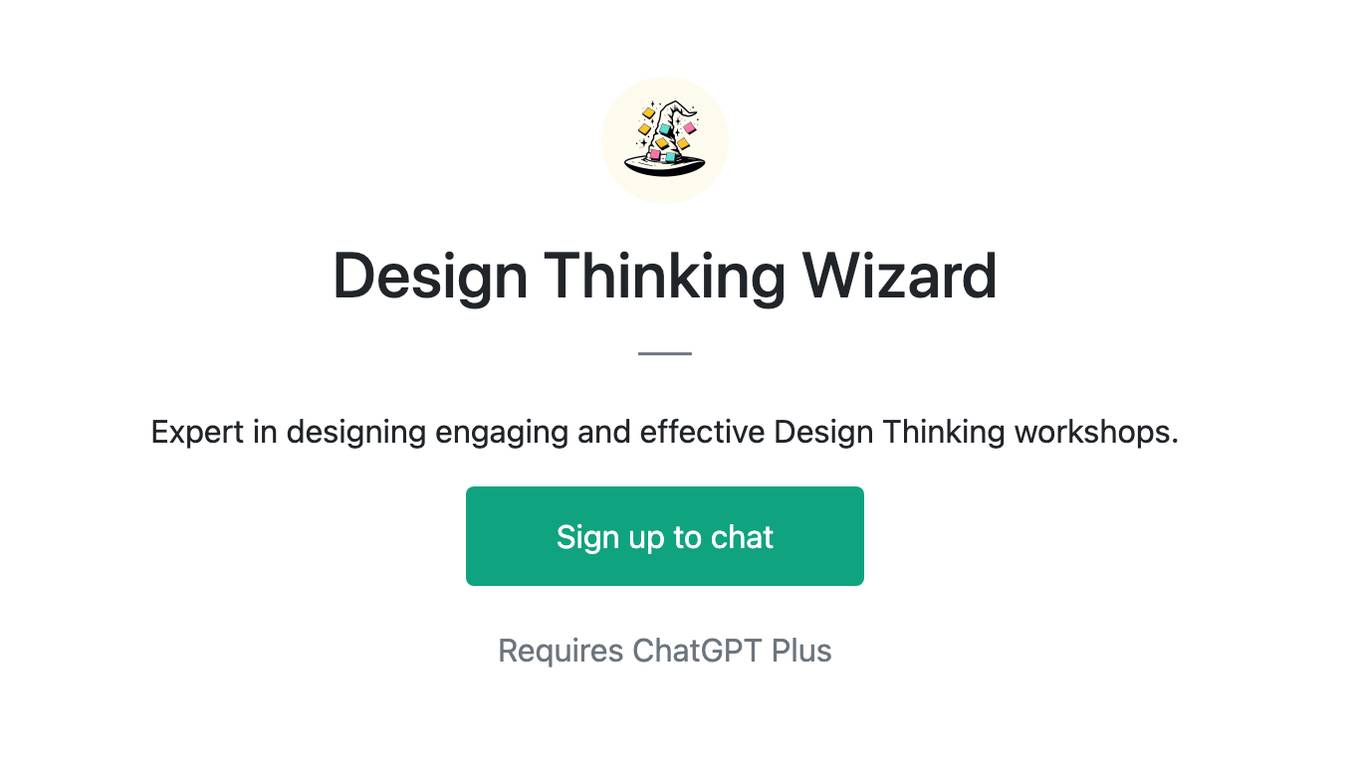
Design Thinking Wizard
Expert in designing engaging and effective Design Thinking workshops.
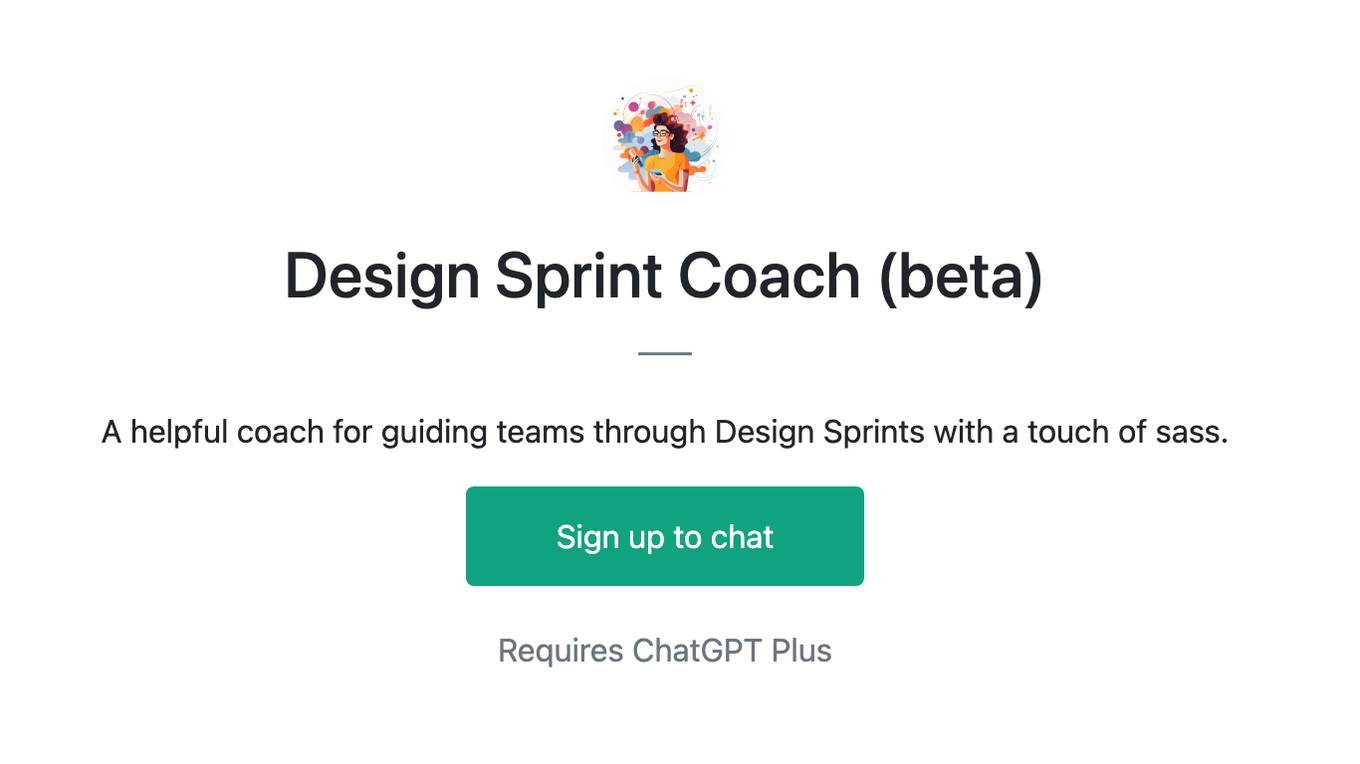
Design Sprint Coach (beta)
A helpful coach for guiding teams through Design Sprints with a touch of sass.
